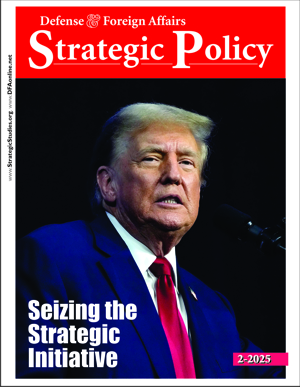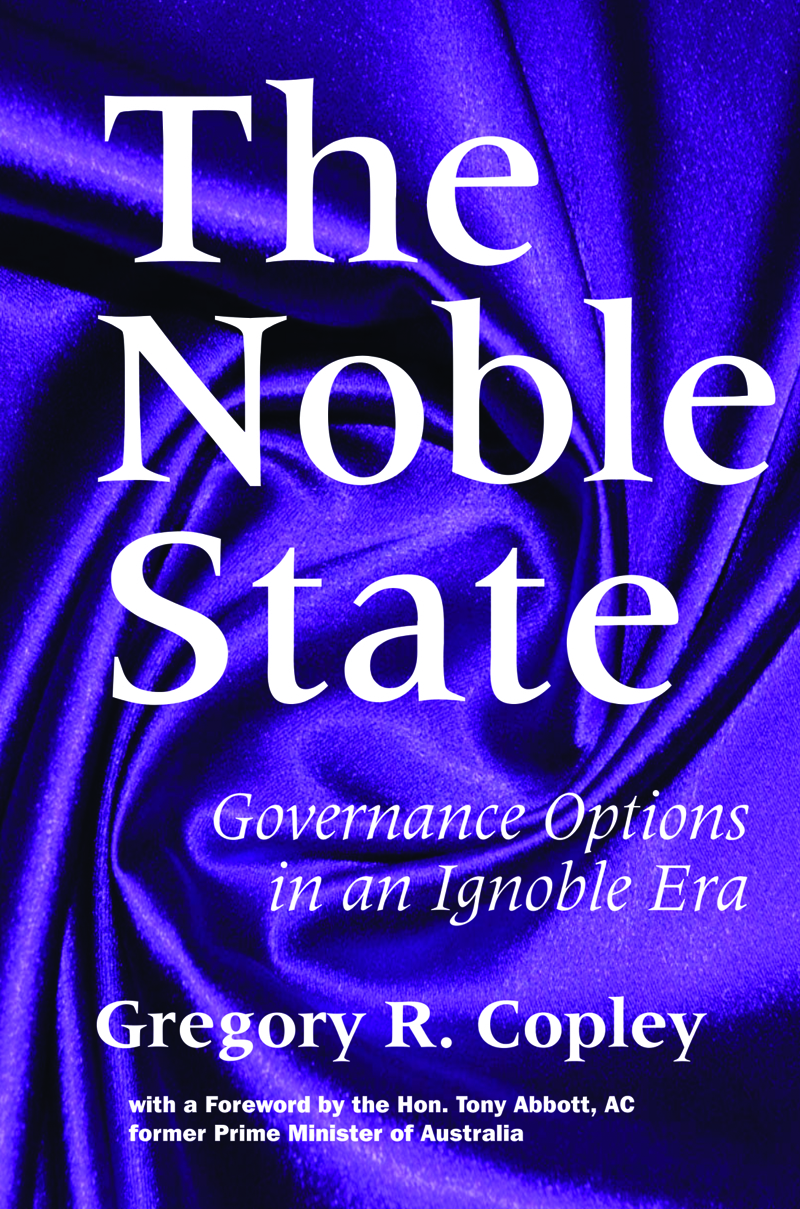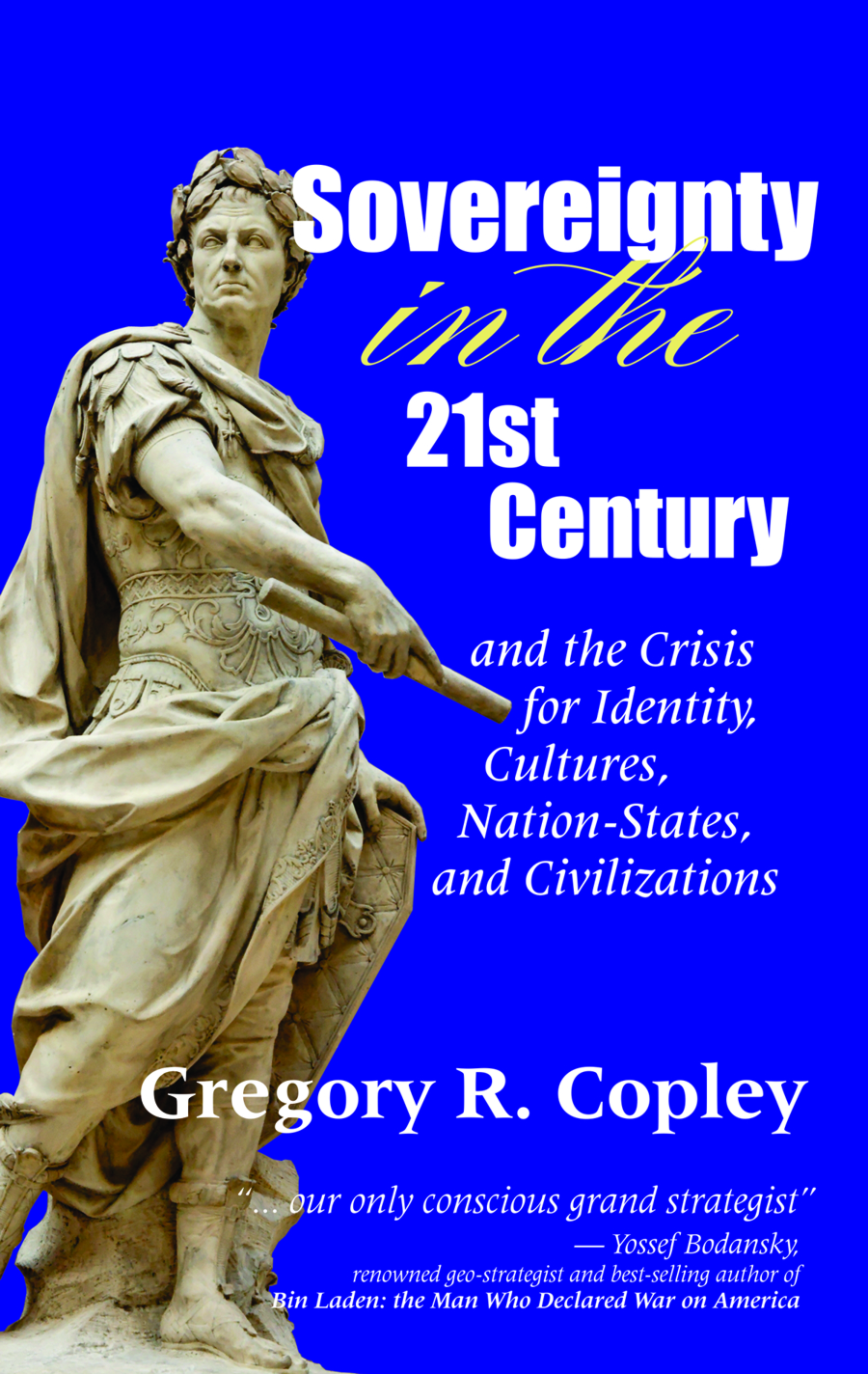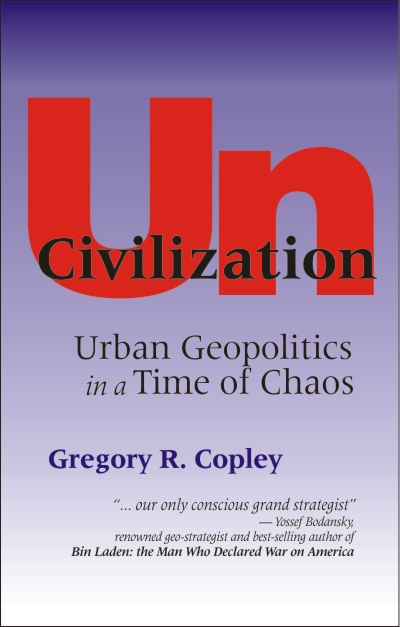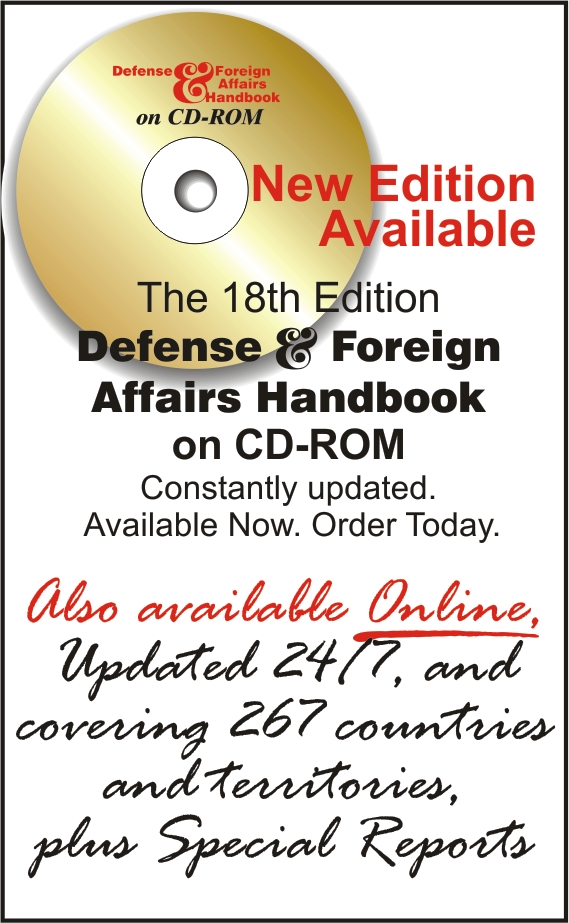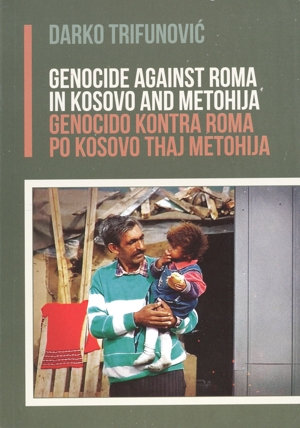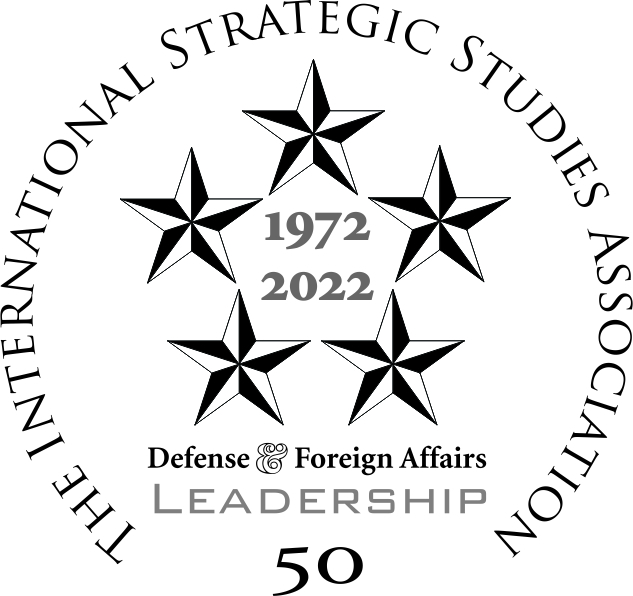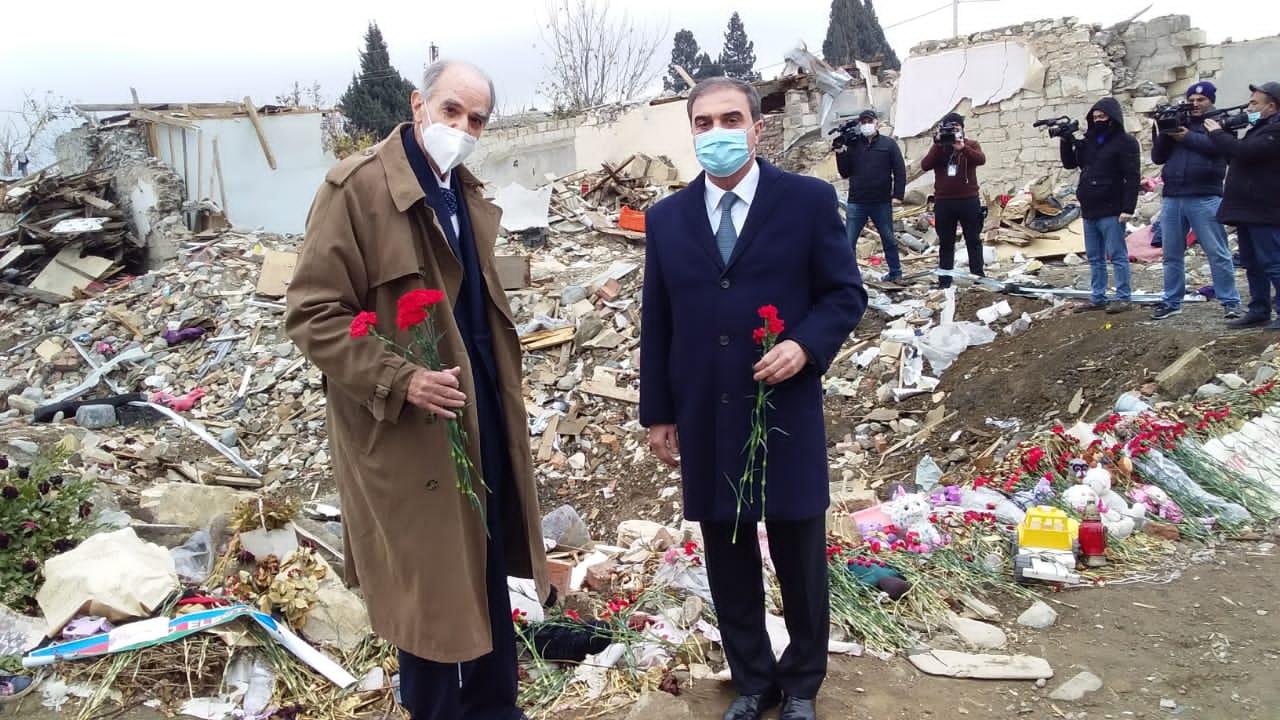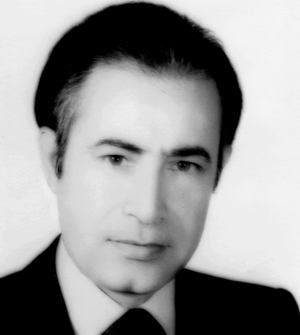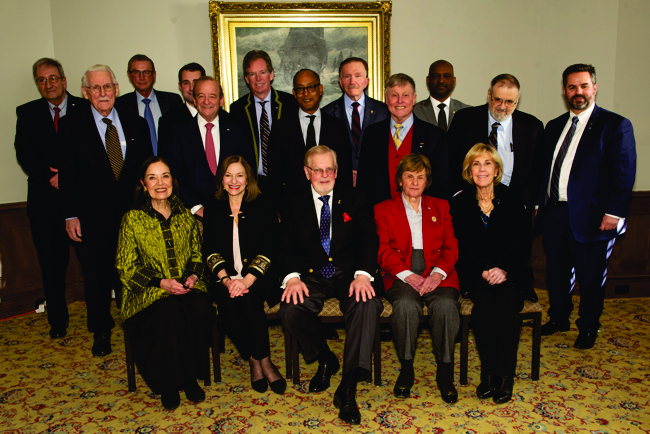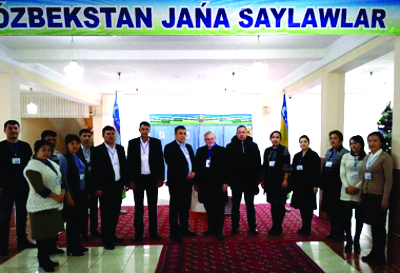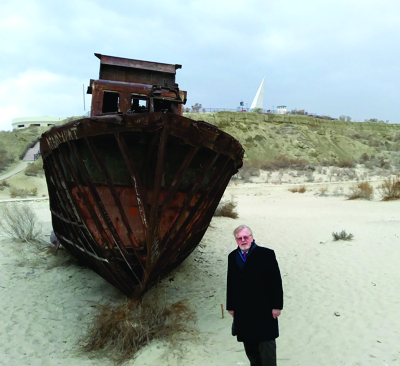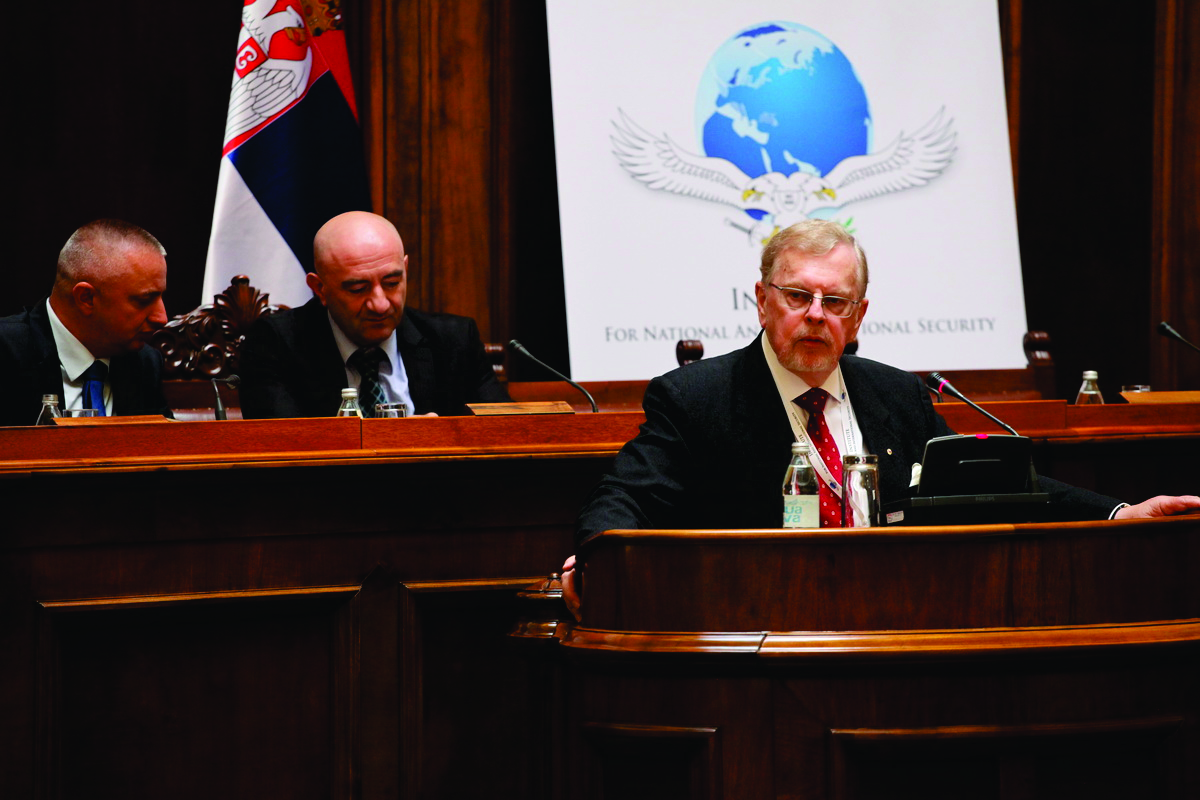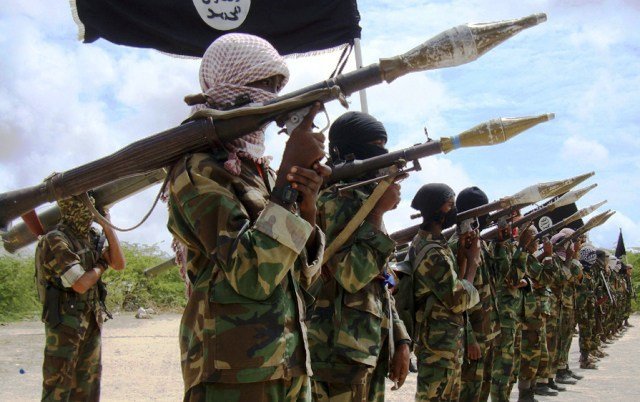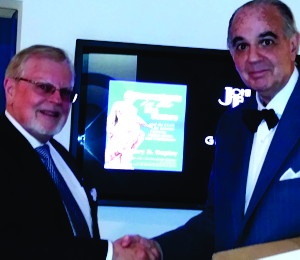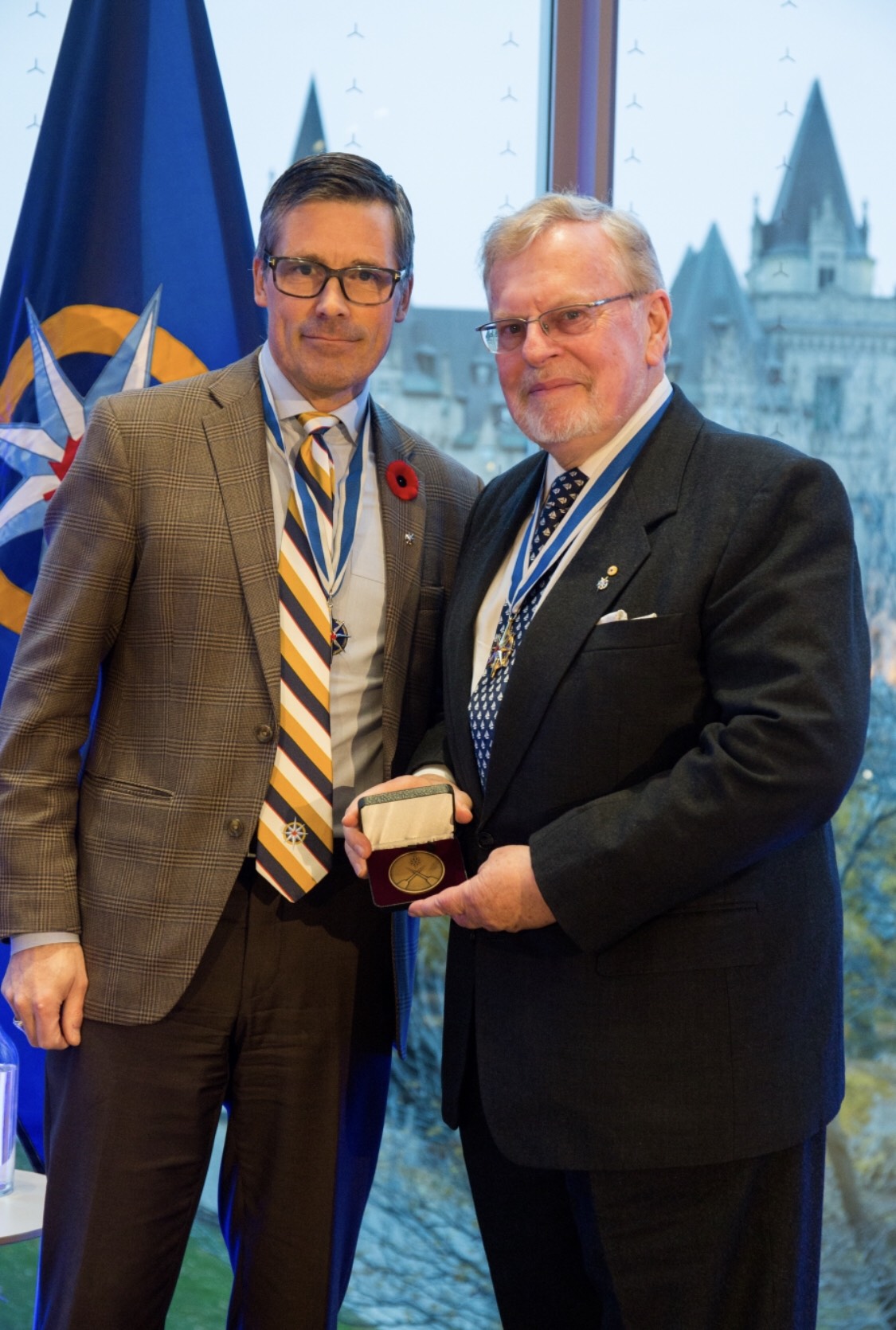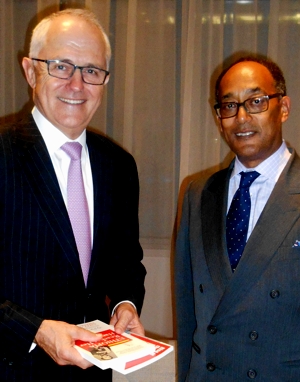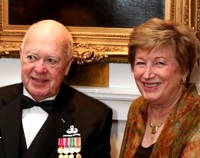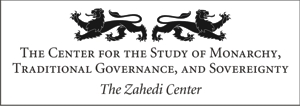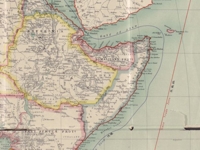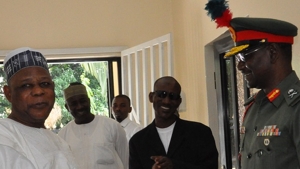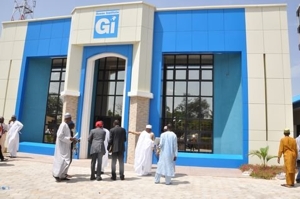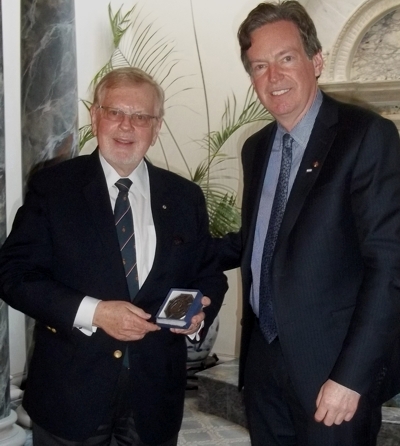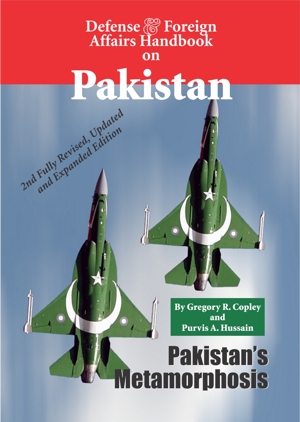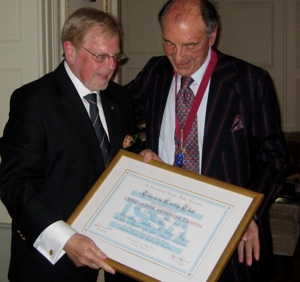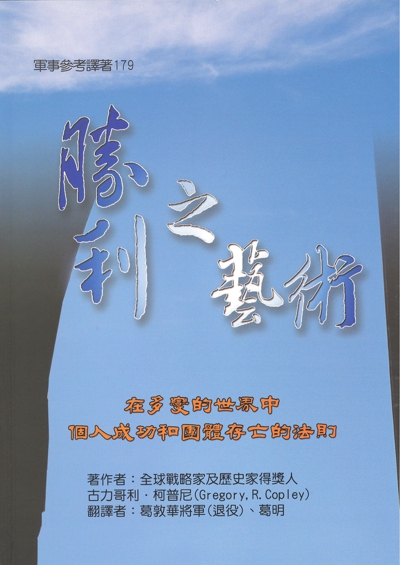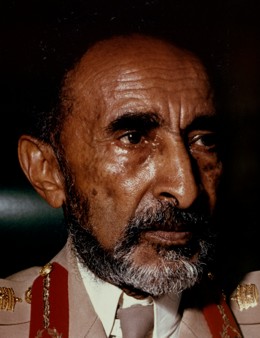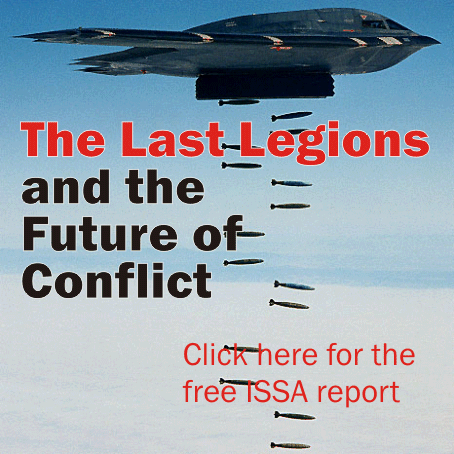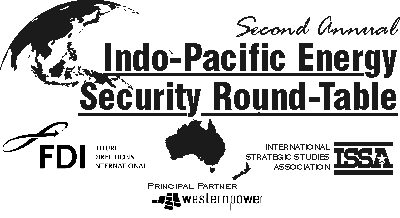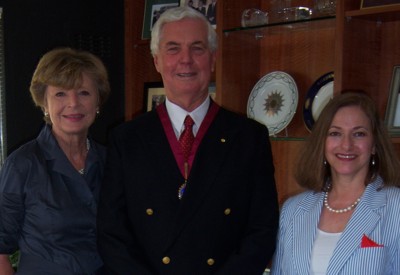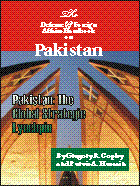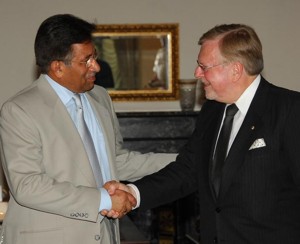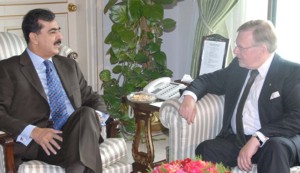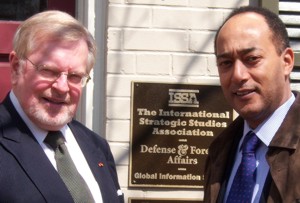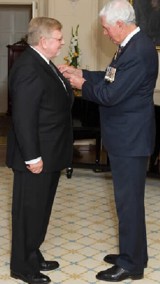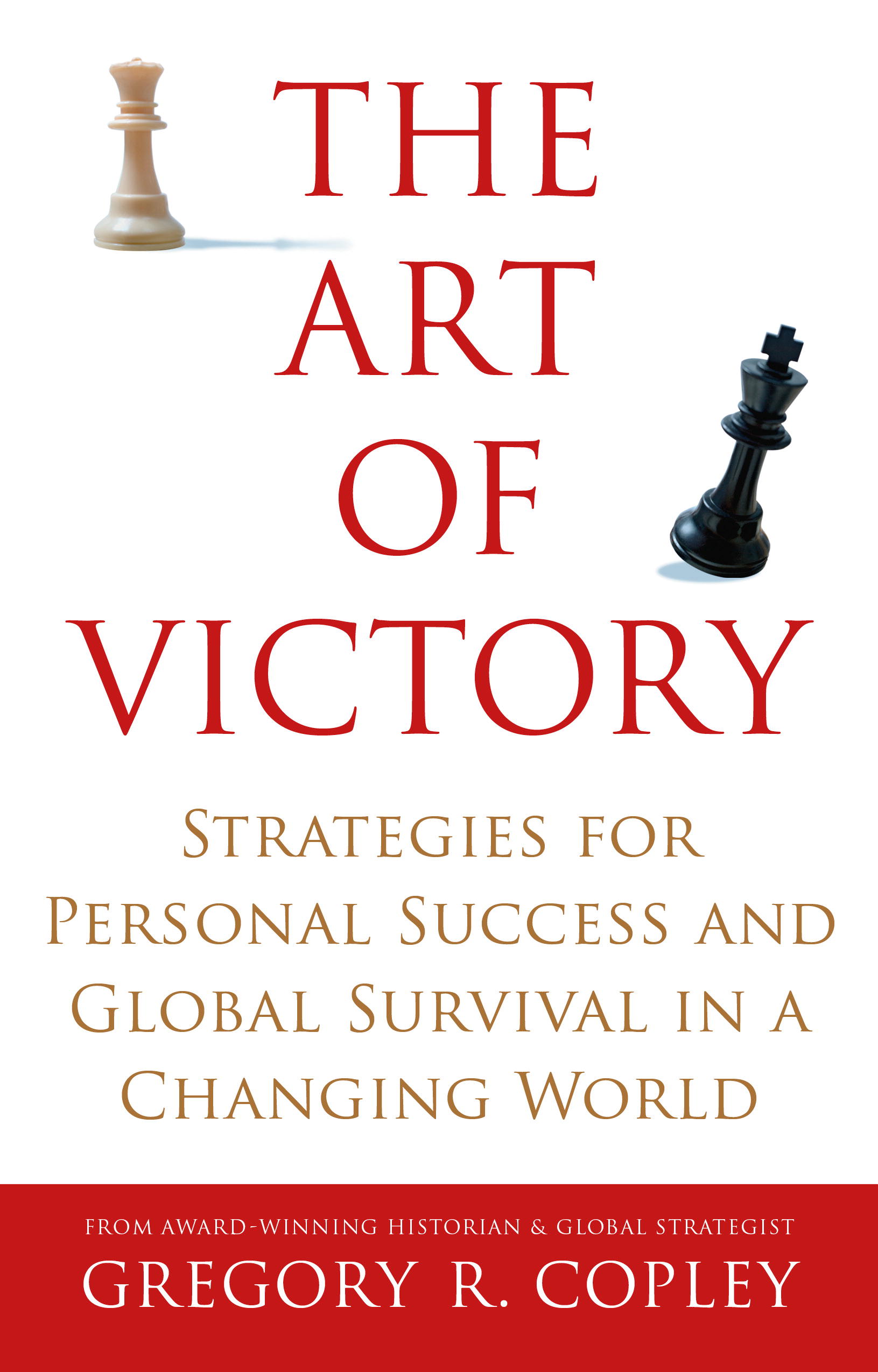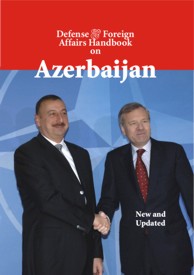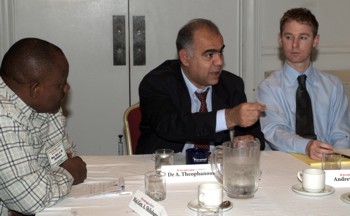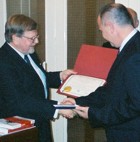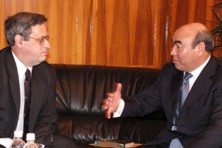 |
||||||||||||||||||||||||||||||||||||||||||||||||||||||||||||||||||||||||||||||||||||||||||||||||||||||||||||||||||||||||||||||||||||
|
|
|
||||||||||||||||||||||||||||||||||||||||||||||||||||||||||||||||||||||||||||||||||||||||||||||||||||||||||||||||||||||||||||||||||
New ISSA Launches Unique Study on Governance and the Lessons Now Evident in Modern Constitutional Monarchies
The International Strategic Studies Association's Center for the Study of Monarchy, Traditional Governance, and Sovereignty on March 1, 2025, launched a major new study, several years in the making, entitled The Noble State: Governance Options in an Ignoble Era. The book, in an elegant trade paperback format, was released as a limited edition (500 copies) with each copy signed and numbered by the author, Gregory Copley, the President of ISSA. The book was dedicated to HM King Charles III of the United Kingdom, and King of Australia, Canada, and New Zealand, as well as head of the Commonwealth. Presentation copies were being presented to key leaders around the world. Former Australian Prime Minister Tony Abbott, AC, wrote the Foreword for the book. The Noble State looks at the current and anticipated condition of the global strategic balance, and at how we have progressed to the present state of massive change. Award-winning Australian strategic philosopher Gregory Copley, in his 37th book, argues that without nobility of leadership, a society cannot have the self-possession to accept nobility in itself. And without nobility of purpose and ideals, a nation-state cannot acquire the prestige and authority it needs to project its influence onto the global stage. But what constitutes nobility and the resultant leadership which brings prestige and influence? How does prestige create the deterrence and power projection to enable militaries to — as Sun-tzu said — win without fighting? What forms of government are best suited to the long-term embedding of nobility — and therefore stability — in governance? Copley looks at the power, now reviving, of modern constitutional monarchies, and how republics can learn from them in an age when all are combating autocracies and totalitarianism. The 300-page book sells for US$39.50 plus postage. ISBN-13: 978-1-892998-17-0. For further details, or to place an order for your copy of the book, please call the Publisher and Executive Director of ISSA, Pamela von Gruber (+1-703-909-4168, or email: Marketing@StrategicStudies.org). ISSA Celebrates 50th Anniversary of its Founding
The International Strategic Studies Association (ISSA) on April 3, 2022, marked the 50th anniversary of its origin: the publishing of the first of the Defense & Foreign Affairs publications, then known as Defense Newsletter. An article detailing some of the history of the organization can be seen by clicking here. The organization's founders, Gregory Copley and Dr Stefan Possony, began by offering a service to governments around the world which lacked access to the strategic analytical assets available to the major powers, essentially helping to provide reporting and analysis which was not skewed by ideologically- or nationally-oriented biases, and which could be used to assist their contextual awareness. ISSA grew out of that concept and was formally launched in 1982 as a membership organization for senior government policy officials worldwide, with the Defense & Foreign Affairs group of publications, and the related Strategy conferences, incorporated into it. Below is a photograph of Defense & Foreign Affairs founders Gregory Copley and the late Dr Possony (who died in 1995), along with Pamela von Gruber, Publisher of Defense & Foreign Affairs, who was also a co-founder of ISSA in 1982. ISSA Senior Fellow On the Scene of Azerbaijan-Armenia Conflict
International Strategic Studies Association (ISSA) Senior Fellow and world-renowned broadcast commentator John Batchelor was, in early December 2020, the first US journalist to come to the war zone of the Azerbaijan-Armenia conflict. John — whose nightly John Batchelor Show is heard nationally in the US and around the world on podcasts — is shown here during the first week of December 2020 with Mayor Bayramov of the city of Ganja in northern Azerbaijan. John Batchelor temporarily broadcast his nightly show from Baku, the Azerbaijan capital, during early December 2020. Ganja was hit in October 2020 by four Armenian Scud medium-range ballistic missiles. The war was a transformational even in South Caucasus and Central Asian geopolitics, as ISSA’s Defense & Foreign Affairs Strategic Policy highlighted in its 11-12/2020 edition. That report, “Eurasia’s Pivotal Change”, can be accessed by clicking here. The report details how the ceasefire agreement, guaranteed by Russia and Turkey between Azerbaijan and Armenia (and through Armenia, the disputed enclave of Nagorno Karabakh), has changed much of the geopolitics of energy in Eurasia, and may also change the transit capabilities of Central Asian states to Western Europe. ISSA has also published two major editions of The Defense & Foreign Affairs Handbook on Azerbaijan, which outlines in considerable detail the essence of the Azerbaijan-Armenia dispute and particularly the aspect around the Nagorno-Karabakh enclave. The second edition of that Handbook is still available from the ISSA store, on this website. Click here to go to the ISSA Store. The 11-12/2020 edition of Strategic Policy also highlighted how global geopolitics would be impacted by the anticipated installation of a Joe Biden Administration in the US. ISSA Highlights the Emergence of a New Age of Amphibious Expeditionary Warfare Amphibious warfare doctrine was beginning to take cognizance of the changing global strategic landscape by late 2020 as the US and the People's Republic of China, in particular, began increasing their confrontation. ISSA on October 6, 2020, published a major report on the changing nature of amphibious doctrine and technology, entitled “Amphibious Operations in a New Era of Offensive Total War”.
The report noted that “Strategic warfare began its profound cyclical move from defensive to offensive predominance, as the brittle post-World War II “United Nations model” of a global matrix of states began to end.” But one of the keys to the new momentum of the offensive — at a time when major weapons transformations, particularly with hypersonic weapons, was occurring — was the reality that new ship technologies could now deliver troops and equipment over long distances, with security and precision, to the beaches over which they must traverse. This was the result of the first major transformation of major landing ship design since World War II. The Australian company, Sea Transport Solutions (STS), had developed a stern landing vessel (SLV) — as compared with the old technology of bow-landing ships — which had now been proven in the harsh South Pacific seas over long distances, changes everything for rapid, reliable projection of forces within the maritime hierarchy. It enabled, for the first time, delivery of “the firstest with the mostest”, as Confederate Gen. Bedford Forrest sought, with some degree of precision and volume. STS’s SLV (pictured here) has all the seakeeping and strength of an oceangoing ship, with integral helicopter support if necessary, and with the ability to quickly insert forces and withdraw effortlessly.
The large landing craft
which must cross significant sea distances in variable sea states
with vehicles and men have often been the weak link in moving large
numbers of troops to the beaches. This has been because the
approach, endemic since World War II, has involved the use of
front-ramp conventional landing craft. Bow landing ships have poor
stability due to their box shape, have low freeboard, and poor
visibility (leading to difficulties in close-quarter navigation),
adding to their vulnerabilities. And when their bows finally ground
on the landing beach, their engines have difficulty in extracting
them due to the diminished torque in reverse mode. The full report can be seen by clicking here.
ISSA President Outlines Kosovo Proposal in Serbian Parliament September 11, 2019: International Strategic Studies Association (ISSA) President Gregory Copley spoke in the Serbian National Parliament on September 11, 2019, on how the US Donald Trump Administration could markedly improve the US situation in South-Eastern Europe by promoting a unique approach to resolving the Kosovo crisis. The full text of his formal presentation can be seen here. The proposal was based on a suggestion by ISSA Senior Fellow Dr Darko Trifunović [see also, below, and an ISSA report of August 9, 2019], who is director of the Belgrade-based Institute for National and International Security (INIS), which held a major hearing into US-Serbian relations on September 11, 2019. Copley also undertook a series of briefings for the media in Serbia and Republica Srpska (Bosnia-Herzegovina), and met with key Serbian Government officials. Dr Trifunović is shown above, in Parliament, at the upper left side of the photograph, with Parliamentarian Dr Zoran Dragišić, who is also affiliated with INIS. Earlier, on September 10, 2019, Copley was given an audience by His Royal Highness Crown Prince Alexander at The Royal Palace in Belgrade, and briefed His Royal Highness on the work of ISSA's Zahedi Center for the Study of Monarchy, Traditional Governance, and Sovereignty. The two exchanged gifts of books during the audience. The Prince presented an inscribed copy of the beautiful book on his father: King Peter II of Yugoslavia: A King's Heritage. Also, on September 10, 2019, Copley spoke to BN TV, the satellite station based in Bijeljina, Republica Srpska, Bosnia-Herzegovina, and introduced the concept of the territorial swap to solve the Kosovo issue. The entire program in English (with the exception of the introductory remarks in Serbian by the anchor) can be viewed by clicking here: https://www.youtube.com/watch?v=KauPJ65rawQ&feature=youtu.be. Copley inadvertently mentions US Pres. Truman, when clearly (as in his formal remarks) he meant Pres. Woodrow Wilson. Yemen Break-Up Has Broad Global Implications: New ISSA Report September 3, 2019: An exclusive ISSA report by its President, Gregory Copley, was released on September 3, 2019, outlining the regional and global strategic impact of the effective collapse of Saudi Arabia's chances for military success in the conflict it initiated there in 2015. The report concludes that the break-up of Yemen, which had only united in 1990, was now effectively underway, with substantial impact not only Saudi Arabia, the UAE, and Yemen, but also the strategic postures of the US, Moscow, and the PRC in the region. Click here to see the PDF report. Pivotal Strategic Change Emerging in the Persian Gulf
August 12, 2019: Unique and important reporting by ISSA Research Director Yossef Bodansky (pictured) was published in the ISSA’s Global Information System (GIS) on major shifts in strategic alliances by Saudi Arabia and the UAE, toward the People's Republic of China. That report, and two other reports were declassified from the GIS confidential reporting service and are made available on this site. Click here to see the PDF report. Breakthrough Concept Outlined to Help End Kosovo Stalemate
August 9, 2019: A breakthrough concept has been proposed by International Strategic Studies Association Senior Fellow Dr Darko Trifunović (pictured) to help begin a negotiated settlement of the Kosovo crisis. Dr Trifunović proposed that there was a way around the Serbian Government negotiating with the Albanian leadership in Kosovo — which Serbia does not recognize, as land illegally taken from Serbia — by opening Serbian-Albanian talks, designed to transfer some of the present Kosovo territory to Albania, with which it is contiguous, in exchange for Serbia receiving some traditional Serbian territory now occupied by Albania. The combined area of Kosovo and Albania would greatly enhance the Albanian state, and the land traded back to Serbia would restore Serbia’s access to the Adriatic Sea. Moreover, the proposed arrangement would alleviate a range of pressures on the US — while giving it some distinct openings — and would help satisfy some of the needs of regional states. The report can be seen in PDF format by clicking here. Tensions in Kashmir; the New Era for Strategic Policymakers August 5, 2019: The International Strategic Studies Association on August 5, 2019, published a series of reports which have been made public. The first deals with the growing tensions in Indian-held Kashmir and therefore impacts India's relations with Pakistan. The second deals with the new factors impacting defense and strategic policymaking over the coming decade, and a third deals with the causes for changes in the strategic policy contextual framework. These reports can be seen in PDF format by clicking here. Why the Changing Status of the UK Matters Globally July 31, 2019: The appointment of Boris Johnson as the Prime Minister of the United Kingdom clearly focuses on the British withdrawal from the European Union — Brexit — but the event has profoundly broader consequences for the global strategic framework, and for the West, in particular. Our Defense & Foreign Affairs Special Analysis, part of our encrypted-access Global Information System (GIS), has been covering the Brexit process since it began, and on July 25 and 29, 2019, carried extensive analysis of what was likely to emerge from the process with the arrival of the Johnson Government on July 24, 2019. A substantial overview report on the UK, and its options, is scheduled to run in the 8-2019 edition of our unclassified monthly journal, Defense & Foreign Affairs Strategic Policy. A draft of that report can be seen in PDF format by clicking here. Strenuous Case Made for the Rôle of Monarchy in Global Stability February 6, 2019: Video documentation has just been released of a major presentation by International Strategic Studies Association (ISSA) President Gregory Copley, entitled “Sovereignty in the 21st Century and the Role of the Crown”. The address was delivered to the 19th National Conference of Australians for Constitutional Monarchy (ACM), held in the Parliament of New South Wales, Australia, on October 3, 2018. ISSA has spearheaded research into the rôles of monarchies through its Zahedi Center for the Study of Monarchy, Traditional Governance, and Sovereignty. [Click here to go to the Zahedi Center home page.] The presentation can be seen at https://youtu.be/48Jvp5B5PW0. The introduction by prominent broadcaster Michael McLaren to Copley’s talk can be seen at https://www.youtube.com/watch?v=-iufecZ_TF0&t=3s. And follow-up remarks by renowned Australian commentator Alan Jones can be seen at https://youtu.be/Yip5P0tkFzE. The full conference and selected highlights of it — as well as other videos from the ACM — can be seen at https://www.youtube.com/user/MonarchyAustraliaTV. Australia, meanwhile, was expected to gear up for a new debate about transforming its system of governance from a constitutional monarchy to a republic if a new government, under the Labor Party, took office following elections in May 2019. The ACM movement, led by Prof. David Flint, AM, FSS, had spearheaded the resounding defeat of an earlier referendum proposal in the late 20th Century that Australia should become a republic. Subsequent surveys have shown that Australians today even more strongly favored the retention of the Australian Crown, but there was a suggestion that the Australian Labor Party would attempt to introduce a Constitutional change by means other than a straightforward popular referendum. ISSA GIS Report on Nigeria: Statement and Full Text
December 31, 2018: International Strategic Studies Association Executive Director Pamela von Gruber issued a statement in Washington, DC, to say that widespread controversy and coverage in Nigeria over a report published by ISSA's Global Information System (GIS) for its government-only audience had now been released in full to quell debate over it. She said: "GIS's Defense & Foreign Affairs Special Analysis reports are produced solely for the purposes of guiding policy officials around the world and are not normally meant for public release, because they are meant to be seen in the context of historical analysis by the Service and detailed country studies. However, given the extent of speculation based on the December 28, 2018, report on the Nigerian situation in the war against the Boko Haram groups, it was decided that the full text of this single document be made public. This historical stream of reports, analysis, and data on which the document was based will not, however, be made public. These remain the property of the GIS user governments around the world." The text can be seen by clicking here. ISSA Sovereignty Study Featured in Extensive US National Broadcast
December 30, 2018: The renowned US nationally syndicated broadcaster John Batchelor on December 13, 2018, recorded an extensive radio and video interview with ISSA President Gregory Copley on his new study, Sovereignty in the 21st Century and the Crisis for Identity, Cultures, Nation-States, and Civilizations, published by ISSA's Zahedi Center for the Study of Monarchy, Traditional Governance, and Sovereignty. The program, which was videotaped in four segments, can be seen on YouTube by clicking on the links below: Part One: https://www.youtube.com/watch?v=peLg5BUhCs4 Part Two: https://www.youtube.com/watch?v=TmDD995ztNs Part Three: https://www.youtube.com/watch?v=e3_7l_qr3PI Part Four: https://www.youtube.com/watch?v=nPguZxqRqQU As well, Copley had earlier talked to the prestigious Washington, DC-based university, the Institute of World Politics (IWP), on November 29, 2018, hosted by IWP's President, Dr John Lenczowski. That program can also be seen on YouTube at: https://www.youtube.com/watch?v=mSkRYbW_Sac ISSA and its President Honored for Helping Advance Geography Studies
November 1, 2018: International Strategic Studies Association (ISSA) President Gregory Copley (pictured, right) was honored in Ottawa, Canada, on November 1, 2018, by the Royal Canadian Geographical Society (RCGS) with the Louie Kamookak Medal for his, and the Association's, work in helping to advance the discipline of geography. The medal was presented at the annual Fellows' Dinner of the RCGS by Society President Gavin Fitch (pictured, left). This was the inaugural year that the medal was awarded, and it honors Inuit historian and educator Louie Kamookak, 58, who died on March 22, 2018. Mr Kamookak was key to finding in 2006 of HMS Erebus, one of the lost ships (with HMS Terror) of the 1845 Franklin Expedition, in the Victoria Strait. The expedition had been seeking to find, and open, the North-West Passage sea lane across the north of the North American landmass, to link the Atlantic and Pacific oceans. Copley also, according to the new medal's citation, “offered his guidance and expertise as a member of the Victoria Strait Expedition Advisory Committee”. Copley, an Australian, was one of only three non-Canadians to have been awarded the RCGS’s Erebus Medal in 2015 for that activity. Copley flew in to Ottawa from a six-week Australian lecture tour to accept the award and noted: “Louie Kamookak was an inspiration, and I was fortunate to have met with him before his untimely passing. So it was an honor to be recognized in the first investiture of the medal, along with Louie’s accomplished wife and working partner, Josephine Kamookak, as well as British actor Jared Harris (who played the lead rôle in the recent historical television re-enactment, The Terror), Norwegian Ambassador to Canada Her Excellency Anne Kari Hansen Ovind (a key in the Canadian-Norwegian efforts to recognize polar exploration), and Canadian teacher and author Kim Wallace.” ISSA is proud to be associated with promoting the increasing relevance of geographical studies, particularly in the post-Cold War era, which has seen a growing return to an age of geopolitics: the renewed understanding of the relationship of humanity to geography. Copley, a Fellow of the RCGS, noted ISSA’s ongoing support for the pioneering work of the RCGS in promoting a study of Canadian and polar geography at a time when resources, changing strategic architecture, and changing trading patterns — including the opening of the North-West Passage — were becoming major factors of global importance. Growing Global Impact of Zahedi Center’s Sovereignty Study
ISSA’s Zahedi Center for the Study of Monarchy, Traditional Governance, and Sovereignty’s new study, Sovereignty in the 21st Century and the Crisis for Identity, Cultures, Nation-States, and Civilizations, has been winning rapid and positive success and influence since its launch on September 5, 2018. Author and ISSA Pres. Gregory Copley followed the book's launch (see item, immediately below) in Washington, DC, with a lecture tour to promote it in Australia. The tour began in the northernmost capital of Australia, Darwin, with the keynote address on September 19, 2018, to the prestigious Asia-Pacific Congress of the Australasian College of Health Service Management (see photo, left). The text of that address can be read by clicking here. Copley also gave a keynote address to the annual gathering of Australians for Constitutional Monarchy (ACM) in the New South Wales Parliament, in Sydney, on October 3, 2018, on the topic of The Rôle of the Crown in Securing Australia’s Future. That report was subsequently issued as a report in ISSA’s Defense & Foreign Affairs Special Analysis, on October 6, 2018, and can be accessed by clicking here. He went on to address a special dinner at The Melbourne Club, in Melbourne, Australia, on issues related to the Zahedi Center study, as well as to provide an update on the transforming situation in the Horn of Africa, where ISSA Senior Fellow and President of the Crown Council of Ethiopia, His Imperial Highness Prince Ermias Sahle-Selassie Haile-Selassie has returned to assist in the transformation of this vital strategic zone. In Perth, Copley addressed several groups, including two organized by the Australia-Israel Chamber of Commerce (AICC), including Copley’s annual Geopolitical Oration to the Chamber on October 29, 2018. Earlier, on October 17, 2018, he had addressed the AICC’s special event, Zig-zagging Into the Future Now, with renowned Australian information technology strategist Karen Lay-Brew. He also talked to several luncheon groups and a special Australian book launch for the Sovereignty study hosted by Australian strategic policy leader Peter Iancov. He also addressed a special gathering of the Mannkal Economic Education Foundation, hosted by Mannkal Founder Ron Manners and Mannkal CEO (and ISSA Senior Fellow and Indo-Pacific leader) Andrew Pickford. ISSA’s Zahedi Center Study on Sovereignty Launched
The International Strategic Studies Association’s Zahedi Center for the Study of Monarchy, Traditional Governance, and Sovereignty's forthcoming study on Sovereignty was launched to a packed house of US and international dignitaries on Capitol Hill in Washington, DC, on September 5, 2018. The book, Sovereignty in the 21st Century and the Crisis for Identity, Cultures, Nation-States, and Civilizations, has been authored by ISSA President Gregory Copley. It was published in print and in e-book formats. For details and to order the book in advance of its release, please click here. The book launch event was hosted by the law firm, McDermott, Will & Emery, and by MWE partner and Senior Fellow of ISSA, Stephen Ryan, Esq. The book already began to garner praise from reviewers in advance of the release of the hard copy of the book. Professor David Flint, AM, the Convenor of Australians for Constitutional Monarchy (ACM), noted:
His Imperial Highness Prince Ermias Sahle-Selassie Haile-Selassie, President of the Crown Council of Ethiopia, noted: “Sovereignty may be the most powerful asset possessed by human societies, and yet we were in danger of forgetting it, or misunderstanding it, until Gregory Copley’s vital new book.” One reviewer on Amazon.com, Dr Assad Homayoun, noted:
ISSA Opens its Doors and Resources to Institutional Memberships The International Strategic Studies Association on March 23, 2018, announced a major new initiative to enhance benefits for its institutional and corporate members around the world. Executive Director Pamela von Gruber said that institutional and corporate members would have greater access to publications and events of the Association, and would also be able to offer links to their organization on the ISSA website. Mrs von Gruber said that Sponsoring Members would be eligible for even greater access to ISSA's worldwide resources, including its live current intelligence databases covering 287 countries and territories. Sponsoring members who subscribe at $5,000 a year will, in addition to receiving Defense & Foreign Affairs Strategic Policy journals for their executives, be able to access the Defense & Foreign Affairs Handbook Online. This has information and data on all the world's countries and territories. Those organizations becoming Sponsoring Members at $10,000 or more per year would now also have access to the organization's unique Global Information System (GIS), the live database and intelligence service which has until now only been available to government users. “This service is unique and robust enough for many countries to rely on as their main source of global intelligence,” Mrs von Gruber said. “It is supplemented daily with current intelligence reports as well as broader strategic trend analysis undertaken by our worldwide team of hundreds of sources.” Institutions or organizations, including governmental organizations, can contact Mrs von Gruber for further details, at email address Marketing@strategicstudies.org, or click here to open the Application for Institutional, Corporate, and Sponsoring Memberships. HIH Prince Ermias Sahle-Selassie Haile-Selassie, Co-Patron of ISSA’s Zahedi Center, Completes Major Commemorative Tour of Australia
His Imperial Highness Prince Ermias Sahle-Selassie Haile-Selassie, the co-Patron of the ISSA Zahedi Center for the Study of Monarchy, Traditional Governance, and Sovereignty, and a Senior Fellow of ISSA, on June 16, 2017, began a two-week major Commemorative Tour of Australia to mark the upcoming 50th anniversary of the State Visit to Australia of his Grandfather, Emperor Haile Selassie I, of Ethiopia. The International Strategic Studies Association and its Zahedi Center were major sponsors of the tour. Click here to see extensive photographic and text coverage of the visit. Prince Ermias' Commemorative Tour embraced Sydney, Canberra, Melbourne, and Perth, and will include similar activities to those undertaken by the Emperor in 1968. Although the visit was a private one, Prince Ermias was asked to address a significant number of groups in each city, including several black tie dinners. Prince Ermias met with Prime Minister Malcolm Turnbull [Mr Turnbull seen here receiving a copy of ISSA publications], and a range of other key ministers. A ministerial reception was held in the Australian Parliament in Canberra, and he was also recognized from the floor of Parliament. A luncheon was held for him in the New South Wales Parliament, where he was also recognized from the floor of the Legislative Council. He laid a wreath at the Australian War Memorial in Canberra, accompanied by the Memorial’s Director (and former Australian Defence Minister) Dr Brendan Nelson. Former Head-of-State Michael Jeffery also hosted a dinner for him in Canberra. The Ethiopian Embassy in Canberra gave strong support to the visit. In Melbourne, Prince Ermias planted a tree at the Royal Botanic Gardens, near the one planted by the Emperor in 1968. He also met with a large number of the Ethiopian-Australian community in Sydney, Canberra, Melbourne, and Perth. He was being accompanied on the visit by ISSA Pres. Gregory Copley and ISSA Executive Director Pamela von Gruber, and a number of ISSA Senior Fellows would participate in the visit in various parts of the trip. Prince Ermias also undertook a similar — and highly successful — Commemorative Visit to Canada on November 15-19, 2017, also under the auspices of ISSA’s Zahedi Center for the Study of Monarchy, Traditional Governance, and Sovereignty. ISSA Mourns Passing of Long-Serving and Valued Senior Fellow Anthony Reed
The International Strategic Studies Association on June 13, 2017, was informed of the passing of one of its long-serving and most valued members of the College of Fellows, Anthony Reed. He fought a difficult battle with cancer. He is shown here with his wife, Mary Jane Reed, in March 2017. A former colonel in the US Army Special Operations Command, Anthony Reed joined ISSA as a Senior Fellow, in part to expand the organization’s knowledge and capabilities in the area of the protection of military personnel. Tony also served until recently as US Ambassador (major-general equivalent) for the United States Army Reserve, reporting directly to the Chief, US Army Reserve and Commanding General, US Army Reserve Command, responsible for legislative and related matters at US Federal and state levels. He was then made Ambassador Emeritus. ISSA President Gregory Copley said that Tony Reed’s incredible energy and decades of experience had made him invaluable to the organization, and his good humor and openness made him a mentor for many. “We mourn his passing, but we are grateful for the fact that he saw the impact of much of his great work," Copley said. Former Senior Rep. of China National Security Leader Joins ISSA College of Fellows Pamela von Gruber, the Provost of the ISSA College of Fellows, announced on October 7, 2016, that Admiral Chen Yeong-Kang (Richard), the former Deputy Minister of Defense (Policy) for the Republic of China (ROC: Taiwan) and, earlier, the fifth Commander of the ROC Navy, had joined the International Strategic Studies Association’s College of Fellows as a Senior Fellow. [More details of Adm. Chen’s career can be found in the College of Fellows’ page.] ISSA Pres. Gregory Copley said that Adm. Chen’s long career of achievements, and his knowledge of global maritime strategy in particular, added an important new dimension to the capabilities of the Association. ISSA Launches New Center Center for the Study of Monarchy, Traditional Governance, and Sovereignty The International Strategic Studies Association (ISSA), the Washington, DC-based global inter-governmental body, on July 1, 2016, announced the creation of a new, dedicated center to study the impact, philosophies, and lessons to be derived from various forms of monarchical governance, traditional forms of governance related to specific societies, and the question of sovereignty and the nation and nation-state. In announcing the new body — to be known as The Center for the Study of Monarchy, Traditional Governance, and Sovereignty — the Executive Director of ISSA, Mrs Pamela von Gruber, acknowledged that its formation had been made possible by support and encouragement by the former Iranian Foreign Minister, Amb. Ardeshir Zahedi, who was named as one of two honorary Patrons of the Center. The other would be His Imperial Highness Prince Ermias Sahle-Selassie Haile-Selassie, the President of the Crown Council of Ethiopia. The Center would be based, at least initially, in the ISSA facilities in Alexandria, Virginia, in the Washington, DC, area of the United States. Both Patrons of the Center have been honored by the award of the ISSA Star for Outstanding Contributions to Strategic Progress, and have continued to take an interest in the work of the body. Prince Ermias is a Senior Fellow of the ISSA College of Fellows, and will be active in the new Center. Click here to see more details. ISSA Co-Sponsors Major Security and Counter-Terrorism Gathering at Belgrade’s John Naisbitt University
The International Strategic Studies Association (ISSA) was one of the major co-sponsors of the February 3-4, 2016 Belgrade conference, National and International Security: Contemporary Global Challenges, hosted by John Naisbitt University, the largest private university in South-Eastern Europe. ISSA President Gregory Copley, Research Director Yossef Bodansky, and Serbia ISSA Representative Dr Darko Trifunovic, all participated as speakers and session chairmen at the event. Dr Trifunovic was one of the event's major organizers, along with John Naisbitt University founder, Prof. Mica Jovanovic, PhD. Dr Trifunovic was also on the Scientific Committee which oversaw the event, along with Dr John M Nomikos (Greece), and Dr Klaus Lange and Dr Klara Knapp Lange (Germany). Research Institute for European and American Studies (RIEAS/Greece), Institute for Transnational Studies (ITS/Germany), the Center for American Studies, Fudan University (China), and the Institute of Semitic Studies (USA) all joined as co-sponsors of the event. Click here to read Gregory Copley’s paper on Transformative Global Trends, delivered at the conference. ISSA Co-Hosts Major Forum on Suez/Red Sea/Horn, SLOC Security
The International Strategic Studies Association joined with the Nigerian research facility, the Gusau Institute, and the Water Initiative for Africa (WIA) to host a Washington, DC, October 30, 2015, invitation-only colloquium entitled Global Nexus: Transforming Governance and Security in the Red Sea & Horn of Africa. Prince Ermias Sahle-Selassie Haile-Selassie, the Patron of the WIA, chaired the gathering. The event focused on the changing power matrix in the region (with the People’s Republic of China’s commitment to maritime basing in Djibouti, Kenya, and Pakistan), as well as the impact of Egypt's August 2015 opening of the greatly-expanded Suez Canal, the transforming rôle of Iran in the region after the P5+1 nuclear deal, the war in Yemen, and much more. Steve Ryan, partner at the law firm of McDermott, Will & Emery, in Washington, DC, hosted the event in the firm's superb conference facilities overlooking the US Capitol building. As a result of the event, which was attended by senior representatives of more than a dozen countries, a major new study, Rise of the RedMed: How the Mediterranean-Red Sea Nexus is Resuming its Strategic Centrality, will be published by ISSA in February 2016. Copies can be obtained at a cost of $22.50 plus $5 S&H, from ISSA: please email Marketing@StrategicStudies.org. ISSA Hosts New Republic of China Vice Minister of Defense
The International Strategic Studies Association on June 25, 2015, hosted the new Vice Minister (Policy) of National Defense of the Republic of China (ROC: Taiwan), Adm. (rtd.) Chen Yeong-Kang at a special luncheon in Washington, DC, for wide-ranging discussions on Asian and global security issues. Adm. Chen, in his recent rôle as Chief of Staff of the ROC Navy, was instrumental in major new warship programs and transformations in naval and maritime policies under the Government of Pres. Ma Ying-jeou. Shown here at the Cosmos Club event are, from left-to-right: LCDR Cheng Wei-Han, Aide-de-Camp to the Vice Minister; His Imperial Highness Prince Ermias Sahle-Selassie Haile-Selassie (in his capacity as Senior Fellow of ISSA); Admiral (Rtd.) Chen Yeong-Kang; Pamela von Gruber, Executive Director of ISSA; Gregory Copley, President of ISSA; Rear Admiral Yang Ta-Wei (David), ROCN, Defense Attaché of the ROC to the US; and Major-General Dr Chen Chia-Sheng, Director of Defense Net Assessment Division, Ministry of National Defense, ROC. Gusau Institute Opens for Business in Nigeria
After some three years of preparation, the Gusau Institute opened its doors on June 18, 2015, as one of the best-prepared strategic research institutes in Africa. The Gusau Institute was created by former Nigerian Defence Minister (and three-times National Security Advisor, as well as a former Chief of Army Staff), Lt.-Gen. (rtd.) Aliyu Gusau Mohammed. It is located in Kaduna, “the capital of the north” of Nigeria, just north of the Nigerian capital, Abuja. The unofficial launch of the Institute, which already has a strong relationship with the International Strategic Studies Association, was marked by a seminar led by South Africa-based Institute for Security Studies (ISS) Executive Director Jakkie Cilliers, talking about the impact of Africa’s “big five” power states. The event, however, attracted a significant turn-out of Nigerian state governors, military leaders, academics, and members of the diplomatic community. The Gusau Institute has a modern five-storey office building, plus purpose-built seminar halls, meeting rooms, a cafeteria and guest villas for visiting scholars, and a major research library of books, periodicals, and newspapers, as well as significant historical archives collected by Gen. Mohammed over decades of service in military, intelligence, and policy work throughout Africa. The Institute also has significant electronic archives, and its links with the International Strategic Studies Association (ISSA) and the Pretoria, South Africa, based ISS represent just the start of its work globally. The Institute plans a major web launch in the near future, along with significant seminars, but additional information can be found at http://gusauinstitute.blogspot.com/. Chairman of the GI event, and Nigeria's first Chief of Defence Staff, Gen. Alani Akinrinade, opened with the comment that perhaps the biggest task before the Gusau institute was to come up quickly with a military doctrine which could tackle the challenge of Boko Haram's type of internal insurrection. ISSA President Honored by Rare Canadian Arctic Award
The Royal Canadian Geographic Society (RCGS) in March 2015 honored the President of The International Strategic Studies Association (ISSA), Gregory Copley, with the presentation of the Erebus Medal for his work on the Committee of Fellows of the RCGS to support the Victoria Strait Expedition, which re-discovered HMS Erebus, which disappeared with Sir John Franklin and his expedition, along with HMS Terror, in 1845. Toronto-based ISSA Senior Fellow John Geiger (right), CEO of the Royal Canadian Geographic Society (RCGS), presented Copley — also a Fellow of the RCGS — with the prestigious new Erebus Medal at a luncheon in Washington, DC. The medal was one of 220 struck to commemorate the 2014 Victoria Strait expedition which rediscovered the wreckage of HMS Erebus. Copley worked on some aspects of the 2014 expedition, particularly dealing with the impact on Canadian sovereignty issues as the North-West Passage — for which Franklin and his team were searching — begins to become viable for Atlantic-Pacific ocean trade. Only three of the medals were issued to non-Canadians. ISSA Publishes Definitive New Handbook on Pakistan
Washington, DC, March 3, 2015: The International Strategic Studies Association (ISSA) has launched its major new study on Pakistan, The Defense & Foreign Affairs Handbook on Pakistan, subtitled Pakistan's Metamorphosis. This is the second Defense & Foreign Affairs Handbook on Pakistan — the first came out in 2008 — but it is much bigger (at 336 pages) than the first. The book, by Gregory Copley and Purvis Hussain, has data and information up until January 2015, and, for the first time, has an extensive color photographic section as well as detailed maps. Pakistan's major strategic transformation in the post-Afghan War era has begun, and with it a new, and revived relationship with the United States, as well as the prospect of a re-set — possibly not of a positive nature — of relations with India. Pakistan’s extensive, and growing defense industrial base is well covered in the book, highlighting the country's heightened defense exporting capacity. But the book also covers, for the first time, Pakistan's cyber capabilities and legislation, along with all of the changes in the Armed Forces and political structures. How to Order: ISBN: 978-1-892998-21-7, Hardcover, 336pp. Price US$49.50, plus $7.50 domestic S&H; $17.50 elsewhere. Major credit cards accepted. Order from: The International Strategic Studies Association, PO Box 320608, Alexandria, VA 22320, USA. Tel. +1 (703) 548-1070; fax +1 (703) 684-7476. Email: marketing@strategicstudies,org. Click here to see the Index pages for the book. ISSA Invests Former Iranian Foreign Minister Ardeshir Zahedi With Highest Honor to Recognize Services to Strategic Progress
Former Iranian Foreign Minister Ardeshir Zahedi was honored at a dinner in Vevey, Switzerland, on May 18, 2013, by the International Strategic Studies Association (ISSA). He is shown here being presented with the rare ISSA Silver Star for Outstanding Contributions to Strategic Progress for his lifetime of muscular diplomatic activity, which included two periods as Imperial Iranian Ambassador to the US, and one to the Court of St. James’s, in London. ISSA President Gregory Copley and ISSA Executive Director Pamela von Gruber presented the medal (made by Garrard, when that company was Crown Jeweler to the British monarch), which he is shown wearing, along with a certificate and life membership of the Association. The presentation made particular note of Amb. Zahedi’s recent and ongoing publication of a series of volumes of memoirs which outline substantial new information on the history of Iran and its region in the 20th Century, essentially transforming many long-held beliefs as to how the counter-coup of 1953 occurred, removing the Mossadegh Administration. The formal remarks accompanying the Award can be seen by clicking here. Major New ISSA Book, UnCivilization: Urban Geopolitics in a Time of Chaos, Now Available The International Strategic Studies Association (ISSA) in has launched the ground-breaking new book, UnCivilization: Urban Geopolitics in a Time of Chaos, by ISSA President Gregory Copley. The book has already been widely acclaimed, and was the subject of a seminar at the prestigious Washington, DC-based Heritage Foundation (click on the following link to see a video presentation of that event: http://www.heritage.org/events/2012/11/uncivilization),
The book can now be ordered in hard-cover form directly from ISSA, with deliveries by mail, and in e-book (PDF) format, delivered by email. Click here to order. Or you can order through Amazon.com. Numerous other launch events for the book took place in Toronto, Canada, as well as in Washington, DC, and in Canberra and Perth, Australia. This broad-reaching philosophical work, specifically addressing the emerging global situation, asks — and answers — the questions: When do civilizations begin ... and end? And how? Is this what we are witnessing as the 21st Century matures? And as a totally new global architecture presents us with an unrecognizable world? What does it all mean for the stability of nation-states, the prosperity of societies, the way we live and wage wars over the coming decades?
UnCivilization: Urban Geopolitics in a
Time of Chaos outlines how we are already entering an age in which
global population levels will begin to decline substantially, The book notes: This really is an entirely new game. It’s time to learn the rules. The book, which sells for US$32.50, is in hardcover format as well as in e-book . The 26 chapters (plus Preface) cover geopolitics (and particularly the evolution of urban social geopolitics), strategic energy patterns, emerging power structure shifts, future battlefield issues, cyber warfare, strategic logistics, intelligence, strategic information models, and much more. The chapter titles are: Preface: Venturing Into an Uncivilized World I. UnCivilization: Why the Emerging “Age Between the Powers” Offers Uncertainty and Opportunity II. We Are All Strangers in a Strange Land III. Flying With Confidence Into Change IV. Flying With Black Swans V. The Lemming Syndrome and Modern Human Society VI. The Age of Terrorism Ends, Yet Terror Lives! VII. Fear and Uncertainty Have Paths of Their Own VIII. The New Geopolitics of Urban Societies IX. Why Urban Societies Place Themselves at Risk X. The Thinning Crowds: How and Why Population Decline and Movement Will Re-Shape the Strategic Equation XI. When Does Size Matter? The Positive and Negative Aspects of Scale in the Strategic Impact of Population Size XII. The Emerging Shape of the World XIII. The Wave Breaks, and the Age of Globalization Passes XIV. “Urban Man” is Now “Energy Man” XV. Heartlands, Rimlands, and Oceans: a New Age XVI. As the World Changes: Cæsarism by Stealth XVII. Thus Changes Empire, thus Democracy XVIII. The Future of Warfare: Why Some of the Next Important Conflicts Will Center on Our Cities, But be Fought in the Countrysides XIX. The Binary Zimmermann: The historic and wider context of cyber warfare, and why it’s too important to let it be dominated by the technocrats XX. Can the “Supply Chain” Save Civilization? XXI. Having a Future in Mind XXII. Is Chaos Necessary? XXIII. What is the Information Model for the Coming “Age of Chaos”? XXIV. Renewal and Revival: A New World XXV. The World at a Pivotal Point XXVI. Epilogue: Empires, Like Snow Upon the Desert, Melt Away More details, including order information, can be found by clicking here. The first edition, linen-bound, is a limited print-run, meant primarily for ISSA members, so the publishers advise placing orders early to avoid disappointment. The book also is available in e-book (PDF) format, in PDF or e-pub format. Hurricane Sandy Showed Vulnerability of US Cities to Cyber Threats Washington, DC, October 30, 2012 — Hurricane Sandy, which ravaged the north-eastern United States on October 29-30, 2012, highlighted the vulnerability of electricity- and computer-dependent urban concentrations to orchestrated, man-made threats to infrastructure, such as cyber warfare, according to strategic philosopher Gregory Copley. Copley, President of the International Strategic Studies Association (ISSA), noted that the threat of cyber war to complex urban infrastructures was far greater than the threat — or anticipated destructive power — of nuclear weapons. Hurricane Sandy highlighted the importance of developing infrastructure- and population-protection capabilities, even though the hurricane’s destructive force was far less than could be created through a concerted cyber attack against essentially defenseless civilian infrastructure. Urbanization had, he said, created extremely vulnerable societies in modern, industrialized states. As a result, he said, “Sandy was a kiss on the cheek compared with the surprise impact of a concerted, man-made cyber attack on the urban network of a great region.” His new book, UnCivilization: Urban Geopolitics in a Time of Chaos, details how the past few decades of compounded migration into urban areas has built great societal wealth, but also extreme vulnerability and fragility. Click here for full text of Mr Copley's statement. The Art of Victory Chinese Translation Published
January 5, 2012: The Chinese-language translation of ISSA President Gregory Copley’s study, The Art of Victory, has been published. The book was translated by the renowned Chinese strategist, and close friend of the author, Vice-Adm. Ko Tun-hwa, who died in Taipei, at the age of 89, on June 12, 2010. [See below: “The Loss of a Great Strategic Mind, and Friend: Vice Admiral Ko Tun-hwa”] Copley noted: “The publication of the Chinese-language edition of The Art of Victory is another great monument to possibly the greatest Chinese strategic thinker of the 20th Century. Tony Ko was well into his eighties when he volunteered to translate the book into traditional Chinese characters, and had just finished the work when he passed away, a few days after we parted on our last time together, touring the Republic of China’s naval bases. He was in this translation work, and in all other things, greatly assisted by Ming Ko, his daughter, who continues to champion her father’s historical achievement through World War II, the Chinese Civil War, and the establishment of the ROC on Taiwan. But Tony Ko’s wisdom is also recognized across the Taiwan Straits, and he hoped that The Art of Victory would be valuable to both the PRC and ROC.” The ROC Navy was also helpful in producing the new edition of the book, and Capt. Dr Laurence Linn helped bring the project to fruition. The Chinese edition was published by Wunan Books, in Taipei, with a cover price of NT$400. It can be found at their website: http://www.wunanbooks.com.tw/searchspider.aspx?searchfor=%E5%8B%9D%E5%88%A9%E4%B9%8B%E8%97%9D%E8%A1%93&keyName=1. September 28, 2011: ISSA Future Battlefield Research Team Develops New Technologies to Match its New Concepts and Prince Ermias’ Water Initiative for Africa (WIA) Evolves from ISSA Research. September 23, 2011: Free Downloadable Special Report: Preparing the Tools for a Transforming World: Challenges for Intelligence Professionals in the Changing Global Strategic Context. September 14, 2011: ISSA Senior Fellows Gather in Washington, DC. Click here for details on that and the College of Senior Fellows.
ISSA Report on “The New Battlefield” Attracts Interest: An End to Asymmetric Warfare A series of studies by a team at the International Strategic Studies Association (ISSA) has thrown new light onto the “battlefield of the future”, and has defined some of the parameters which will drive new equipment thinking. Some of the papers resulting from the study can be downloaded here. “Governments fielding modern conventional forces which allow themselves to be drawn into asymmetric warfare situations have learned the hard way that they cannot allow an adversary to define the rules of engagement," ISSA President Gregory Copley said. “The key is to define a new form of symmetrical warfare in which modern military forces can excel, staying in the field for protracted engagements, without the burden of heavy diesel and water logistical tails, and without reliance on high-cost strategic weapons. Strategic weapons have another rôle, and that is to stave off conflict where-ever possible; tactical engagements cannot be driven in future by legacy systems. That is the road to economic and political defeat.” The papers which can be downloaded from this site are:
The studies led to the creation of a set of specifications for new systems which would enable protracted deployment, by providing non-diesel dependent sources of purified ground water, desalinated sea-water, and electrical power. These specifications were taken up by US R&D house, Strategic Asset Protection Systems, Inc., which created the Argonaut family of vehicle-based, back-pack, and transportable systems to achieve the mission goals which the ISSA studies defined. The basic specifications for some of the Argonaut systems can be downloaded here. The Energy Security Debate Just Entered a New Era
The International Strategic Studies Association (ISSA) in early February 2011 releases a major new study, Defense Security 2.0: How Energy is Central to the Changing Global Balance in the New Age of Geography. The 166-page study, released in paperback, takes a profoundly new approach to the question of global energy security, and how national energy strategies must be re-thought to take account of new technologies, lifestyles, and geopolitical realignments. The book is the result of the Third Indo-Pacific Energy Security Round-Table, organized by ISSA and ISSA Indo-Pacific in late 2010 and early 2011. It was authored by Gregory Copley, the ISSA President; Andrew Pickford, the ISSA Indo-Pacific Managing Director; Yossef Bodansky, the New York Times bestselling author and Director Research at ISSA; and renowned Australian scientist David Archibald. In the Preface to the book, the authors note: "Energy Security 2.0 is a term to express how some very new and profoundly strategic patterns of global change are emerging. They are occurring particularly in how we use energy as the key determinant of the survival of urban-dominated states.” “Moreover, as this study, shows, geography — temporarily sidelined as the core strategic constant during the brief period of globalization — has once again become a basic element of emerging social and power balance changes. One of the themes of this study is the evolution of the Eurasian continental states as an increasingly integrated bloc, and the separate evolution of maritime powers. These groups have different outlooks on governance, commerce, and, in some respects, energy systems.” Energy Security 2.0, which is priced at US$24.95 a copy plus S&H, can be obtained by contacting ISSA on telephone +1 (703) 548-1070, in the US, or emailing marketing@strategicstudies.org. It can also be ordered by completing and returning the online order form (click here). Statement Adds to Ethiopian Debate on Reconciliation in the Long Search for Justice After the Dergue
International Strategic Studies Association’s (ISSA) Senior Fellow Prince Ermias Sahle-Selassie Haile-Selassie, the grandson of His Majesty Emperor Haile Selassie I, of Ethiopia, issued a statement on January 24, 2011, on the growing debate in Ethiopia over proposals to pardon some of the perpetrators of war crimes during the period in which the Dergue (Committee) of Mengistu Haile Mariam seized the country, killing the Emperor (pictured right) and hundreds of thousands of others. Prince Ermias, who works with ISSA in conflict resolution issues around the world, noted: “In terms of the law, pardons are a way to correct faults left unaddressed by the judicial process. They offer a second chance to people wrongly convicted or disproportionately punished. This certainly is not the case with the former officials. There should be no reason why these former officials cannot atone for their sins by serving the terms and sentences imposed on them by law, while understanding that their atonement is their part of the healing of forgiveness which the sufferers grant to them.” The full text of his statement can be viewed by clicking here. His statement noted: “To grant forgiveness without the presence of atonement does not help the healing of a brutalized society. It should never be forgotten that it was the same regime which without hesitation or the slightest pretext for justice murdered and maimed thousands of Ethiopians. It was a regime that boasted the immaculate keeping of records of those it killed and tortured. It is the same regime that traumatized a whole generation of Ethiopians, and forced many to flee their beloved country.” GIS and the Latest Defense & Foreign Affairs Handbook Add New Sections on Southern Sudan, Other Territories The International Strategic Studies Association’s (ISSA) Global Information System (GIS) and its Defense & Foreign Affairs team at the beginning of 2011 added major new country sections to their databases, with comprehensive sections on Southern Sudan, and other areas.
“We are now engaged in direct monitoring and reporting on 256 countries and territories around the world,” said Pamela von Gruber, Executive Director of ISSA (pictured at left). “As a result the new 18th edition of Defense & Foreign Affairs Handbook on CD-ROM, and the Defense & Foreign Affairs Handbook Online continue to offer the most comprehensive unclassified global intelligence coverage of any service available. “Our government-only, encrypted access Global Information System — which draws on our global network of collectors and analysts — is now a resource which provides global current strategic intelligence on these 256 countries and territories, plus overarching international trends, to governments which must limit their major budget outlays to intelligence targets of immediate national concern,” she said. “We have been very proud to be able to offer resources to governments to maintain — and improve — their strategic intelligence coverage at a time when defense and intelligence budgets have come under great strain in most countries around the world.” Ms von Gruber can be contacted at PvGruber@StrategicStudies.org to provide specifics of the new Defense & Foreign Affairs electronic products, and the government-only Global Information System.
New Book From ISSA President On Preferring Life: Human Considerations in a Larger World, the latest book from International Strategic Studies Association (ISSA) President Gregory Copley, has been published by SidHarta Publishers, in Melbourne, Australia. An advance launch reception was given for the book in Australia in late November 2010, and it was available in bookstores in Australia and online from January 2011. It has also subsequently been published internationally through Amazon.com. The book has been described as “a unique mix of literature and biography, by someone who has for four-plus decades worked in many of the world’s turbulent and often less-navigated areas, especially the human mind”. The book’s publishers, who have also published two earlier books by Copley on the Indian Ocean and the strategic outlook of Australia, commented: “Strategy isn’t just about what’s out there; it’s also about what’s inside”. Strategic analyst and philosopher Gregory Copley has spent more than four decades traveling into conflict zones; advising governments; helping to draft constitutions; and to design, train, and operate intelligence agencies; and much more. He’s seen what works, and what fails. “If you have a clear picture of the strategic terrain, then obviously you’ve missed the reality,” he says. “The world’s complexities, inconsistencies, and mosaics, blending serendipitously in the accidental confluences of great trend rivers take us along paths which can only be explored by open minds which embrace the beauty of blurred edges and uncertainty.” On Preferring Life is like no other book he’s written. The publisher notes that this book is “remarkably personal, yet refreshingly optimistic about the power of individuality and leadership”. To order the book, email the publisher directly (author@Sidharta.com.au), or go to Amazon.com at: ISSA and ISSA Indo-Pacific Hosts the Third Annual Indo-Pacific Energy Security Round-Table in Washington, DC
The International Strategic Studies Association (ISSA) and ISSA Indo-Pacific — based in Perth, Western Australia — jointly hosted the Third Annual Indo-Pacific Energy Security Round-Table as a colloquium of direct and indirect meetings, beginning on November 4, 2010, in Washington, DC, and running through the end of 2010. The first two Indo-Pacific Energy Security Round-Tables were held in Perth, Western Australia, in 2008 an 2009. The Third Annual Indo-Pacific Energy Security Round-Table — known as 3ESRT — was part of the ISSA Strategy series of conferences. The 3ESRT project resulted in the creation of a new study, Energy Security 2.0: How Energy is Central to the Changing Global Balance in the New Age of Geography, to be released in Washington, DC, in February 2011, and in Perth, Western Australia, in March 2011. The Loss of a Great Strategic Mind, and Friend: Vice Admiral Ko Tun-hwa
Vice-Admiral Ko Tun-hwa, the National Policy Advisor to the President of the Republic of China (ROC: Taiwan), and a recipient of the ISSA Award for Outstanding Contributions to Strategic Progress, died, at age 89, in Taipei, on June 12, 2010. VADM Ko — Tony Ko to his Western friends — had been active in strategic affairs right up to the time of his passing. He was regarded as one of the foremost maritime strategists in the world, and had pioneered modern studies of sea lane security. He had also been a true naval hero, fighting against the Japanese invasion of China, then operating with the Royal Navy at the D-Day landings at Normandy and in the South of France before returning to China to emerge as a major participant in the Chinese civil war. VADM Ko spent the last week of his life with ISSA President Gregory Copley, in Taipei, at the Naval Command & Staff College, the National Defense University, and at naval facilities in the ROC. A tribute to his life was published in Defense & Foreign Affairs Strategic Policy. Click here to see the PDF of the report. He is seen here, on the bullet train from Taipei to Kaohsiung, with his daughter and great aide, Ming Ko, just a few days before his passing. Passing of Gen. Alexander M. Haig, ISSA Advisory Board Member The International Strategic Studies Association records with great sadness the passing on February 20, 2010, of General Alexander M. Haig, Jr., the former US Secretary of State and former Supreme Allied Commander-Europe (SACEUR), and leading member of the ISSA Board of Advisors. Please click here for a testimony to Gen. Haig, written by his friend and ISSA President, Gregory Copley. ISSA was represented at the moving funeral service for General Haig, on March 1 and 2, 2010, by Senior Fellow Dr Assad Homayoun (who attended the viewing on March 1), and by Senior Fellow Prince Ermias Sahle-Selassie Haile-Selassie, and Gregory Copley. Defense & Foreign Affairs Handbook and Strategic Policy Now On-Line ISSA’s Defense & Foreign Affairs Handbook, which has been published since 1976 as a 2,500pp hard-bound encyclopedia, is now available online, updated 24/7, and with a wide range of additional special reports. The Handbook Online (which is available by single or multi-user subscription) can be accessed through our sister website www.DFAonline.net. As well, the monthly print journal, Defense & Foreign Affairs Strategic Policy is now also available free on-line in PDF format to paid subscribers to the print edition, through the same website. Strategic Policy subscribers can get their passwords for free access to the on-line version of the journal by emailing marketing@strategicstudies.org, and requesting a site password which will enable access. Subscriptions to the Defense & Foreign Affairs Handbook Online can also be purchased by emailing the same address. Multi-terminal subscriptions can also be obtained for the Handbook Online. The on-line version of the Handbook was necessitated by the fact that the product was becoming too big to print in a single volume, and by the reality that constantly updated material was likely to be of far greater benefit than the static printed edition. The Handbook is still also available in CD-ROM format. ISSA Ends Ties with Future Directions The International Strategic Studies Association in mid-February 2010 cut its ties with Future Directions International (FDI), the Australian research center. Gregory Copley, the ISSA President, who had been instrumental in founding FDI with Sir Charles Court and Maj.-Gen. Michael Jeffery in 2000, noted: “ISSA had been proud to be a major supporter of FDI since its foundation as the Centre for International Strategic Analysis (CISA) in 2000. The time has now come, after a decade of investment, for FDI to function independently. As a result, I have retired from the FDI Board, effective immediately, and from its Research Committee. ISSA and I, personally, have been pleased to have helped found FDI.” ISSA has been responsible for helping to launch national strategic research organizations in a number of countries around the world, and would continue to undertake this mission, Copley said. ISSA Forms New Indo-Pacific Institute to Cope With Growing Importance of the Indian Ocean and Pacific Regions
The growing dynamism of the extended Indian Ocean region, added to the centrality of the Pacific Ocean Asian rim to 21st Century strategic growth, led to the creation of a new affiliated organization of the International Strategic Studies Association (ISSA). The new body, ISSA Indo-Pacific Pty. Ltd., was created at the beginning of 2010, based in Perth, Western Australia — on the Indian Ocean — to serve as ISSA's formal representative in the region. ISSA Indo-Pacific Pty. Ltd. will also act as an independent research, analysis, and advisory body, working with regional governments and with the private sector and academia. Western Australian Andrew Pickford, a longtime associate of ISSA and, since 2009, a Senior Fellow of ISSA Worldwide, is the Managing Director of ISSA Indo-Pacific. ISSA President Gregory Copley, AM, based in Washington, DC, but also Western Australian born, is Chairman of the new organization, and Craig Lawrence, AM, until recently CEO of Future Directions International, the Australian research organization, will Chair the ISSA Indo-Pacific Council of Advisors. ISSA Indo-Pacific will act as the coordinating body for ISSA conferences in the region, including the forthcoming Third Annual ISSA Indo-Pacific Energy Round-Table, scheduled to be held in conjunction with Strategy2010: the Global Strategic Forum, in November 2010, in Perth, Western Australia. Click here for the ISSA Indo-Pacific home page. ISSA Stages Second Annual Indo-Pacific Energy Security Round-Table in Perth The International Strategic Studies Association (ISSA) sponsored the Second Annual Indo-Pacific Energy Security Round-Table in Perth, Western Australia, on April 6-7, 2009. Both organizations sponsored the first such Round-Table in Perth in August 2008, and the 2009 event was expanded to a two-day event.
Perth is rapidly become one of the key resource capitals of the world, with a strong emphasis on the energy and minerals sectors. The 2009 conference was supported by the Perth-based energy utility, Western Power, as the Principal Partner in the event. The Round-Table will be chaired by Maj.-Gen. (rtd.) Michael Jeffery, AC, AO (Mil.), CVO, MC, the recently-retired Governor-General of Australia, who is now Chairman of FDI, Australia's Center for Strategic Analysis. The first ISSA Round-Table on the energy security situation in the Indian and Pacific Ocean regions resulted in an FDI publication, Energy Security in the Indo-Pacific Basins: Looking at the Broader Context in a Time of Change, which can be downloaded in PDF format, by clicking here. ISSA President Gregory Copley spoke at the event, and ISSA Executive Director Pamela von Gruber also participated in the Round-Table. ISSA Co-Sponsors Kiev Conference on NATO The International Strategic Studies Association (ISSA) joined with the American Institute in Ukraine (AIU) to sponsor an international conference in Kiev, Ukraine, on April 2, 2009, on The 2009 NATO Summit: What Will It Mean for Ukraine? ISSA Director of Research Yossef Bodansky led the ISSA delegation to the conference.
The conference was designed to provide advance discussion and analysis to help shape debate at the April 3-4, 2009, NATO heads-of-state gathering, which includes US Pres. Barack Obama, in in Baden-Baden and Kehl, Germany, and in Strasbourg, France, for the 21st NATO summit commemorating the 60th Anniversary of the Alliance. Near the top of the list of the NATO Summit was the accession agenda for Ukraine. At the ISSA-AIU conference, distinguished US and Ukrainian speakers discussed key questions relating to the summit and consequences for Ukraine, the United States, and NATO. Outgoing Australian Governor-General Michael Jeffery Honored
Maj.-Gen. (rtd.) Michael Jeffery, AC, AO (Mil.), CVO, MC, the Governor-General of Australia from August 2003 until November 2008, was, on February 1, 2009, invested in the Australian capital, Canberra, with the Gold Star Medal for Outstanding Contributions to Strategic Progress by the International Strategic Studies Association (ISSA). Gen. Jeffery (pictured, wearing the medal at the Investiture, and flanked by his wife, Marlena Jeffery, and ISSA Executive Director Pamela von Gruber, right) was only the second Australian to have been awarded the ISSA Medal since the Award was instituted in 1982. Gen. Jeffery had been awarded the medal, which is reserved for Heads-of-State and Heads-of-Government, in August 2008, while he was still serving as Governor-General. The only other Australian recipient of the ISSA Gold Star was Sir Charles Court, the former Premier of Western Australia, who was invested with the medal in September 2005; he died in 2007. Gen. Jeffery’s citation noted: “Major-General Michael Jeffery has been unanimously proposed and approved by the Governors of the International Strategic Studies Association to receive the Gold Star Award for Outstanding Contributions to Strategic Progress, the Association’s highest honor, specifically for heads of state and government, because he has exemplified outstanding characteristics of leadership, statesmanship, and strategic vision in his stewardship of the Commonwealth of Australia and as guardian of its constitutional values. In his post as Governor-General of the Commonwealth of Australia, and in his earlier military and government careers, he has contributed profoundly not only to the success of his own country and people, but to the creation and strengthening of great bonds of friendship and cooperation between Australia and many other nations. In so doing, he has added immeasurably to the welfare of Australia and those partner nations which have broadened their dealings with Australia in terms of trade, security, and social exchange.” “General Jeffery’s vision of the conduct of nations and the practice of international relations, and the enduring practical example of his time in office, have been of profound importance to Australia and other nations in an age of change and uncertainty. He has gone beyond the normal boundaries of his formal position to inspire, encourage, and to set examples in the areas of governance, national planning, social cohesiveness and identity, and in service to the community.” Gen. Jeffery, a former Commander of Australia’s Special Air Services Regiment and a recipient of the Military Cross for gallantry in Vietnam, resumed his position as Chairman of Future Directions International, Australia’s center for strategic analysis, based in Perth, and also became Chairman of the Royal Flying Doctor Service on retirement as Australian head-of-state. Defense & Foreign Affairs Handbook on Pakistan Brings Out Significant New Data on War in Afghanistan, Region
A major new ISSA study, The Defense & Foreign Affairs Handbook on Pakistan, has reported that Indian security services, working with Afghan Government intelligence officials, have been providing arms, intelligence, training, and other support to jihadist fighters to destabilize Pakistan’s North-West Frontier Province (NWFP) and Pakistani tribal areas. The 260pp study also cited US intelligence sources as confirming the Indian and Afghan Government actions, but said that the US was taking no steps to stop the destabilization of Pakistan, despite the fact that Pakistani cooperation with the international peacekeeping operations is critical to the success of the war to halt the Taliban in Afghanistan, and despite the fact that Pakistan — which is currently now a net importer of food — is providing massive food aid to Afghanistan. The study, authored by ISSA President Gregory R. Copley and Purvis A. Hussain, provides the most significant depth of detail ever published on the political, military, and intelligence situation prevailing in Pakistan. The book, which has extensive current listings of key Pakistani defense personnel, cabinet officials, Foreign Ministry officials, and the like, as well as the first listings published of the Pakistani defense industrial sector, was scheduled to be launched at the Fifth International Defence Exhibition, in Karachi, on November 25, 2008. The book also has the most detailed order of battle data yet published on Pakistan, as well as significant chapters on the economy, the tribal areas, the regional situation, and much more. The Defense & Foreign Affairs Handbook on Pakistan is part of a series of Defense & Foreign Affairs country studies produced by the International Strategic Studies Association. The country handbooks, such as the recent one on Azerbaijan, complement ISSA’s worldwide Defense & Foreign Affairs Handbook, which is now being published in its 17th edition in CD-ROM format, and will soon appear as online with Defense & Foreign Affairs Handbook Online. To buy the book, or for further information, contact the Publisher, Pamela von Gruber, at ISSA on +1 (703) 548-1070, email at marketing@StrategicStudies.org, or by fax at +1 (703) 684-7476. The cost of the hardcover book is $45, plus $7 S&H in the US, $13 elsewhere. Study Highlights Australian Security Options A new study by strategic think-tank Future Directions International (FDI), the Australian sister organization to the International Strategic Studies Association (ISSA), has said that Australia could find more funding for defense equipment, but cannot, at almost any price, find adequate numbers of new recruits. As a result, the study said, preserving the lives, morale, and mission success of defense personnel was one of the highest priorities to be weighed in the forthcoming Government Defence White Paper. The study, entitled Australia’s National Security: Considerations for Planning Defence and Security Capabilities Well Into the 21st Century, also said that Australia must move even more rapidly toward making national security a “whole of nation” affair because “hard power” options — the use of military power — would never be sufficient as an option for Australia. Gregory Copley AM, the study’s author, who is also President of the ISSA, noted: “Even though Australia is between the 11th and 13th largest defense spender in the world in absolute terms (depending on the calculating methods being used; it ranks nowhere near this high in terms of the percentage of GDP spent on defense), it still cannot expect to meet its strategic and security needs through reliance on military spending alone.” “The welfare and security of the nation-state cannot be left solely to a necessarily-small (by international standards) defense force, no matter how innovative and well-equipped it may be,” Mr Copley said. Click here to download a full PDF file of the 76-page paper. Click here to connect with the Future Directions International website.
ISSA Report Challenges View That Pakistan Lagging in Contribution to the “War on Terror” Washington, DC; June 13, 2008: The International Strategic Studies Association today released the findings of a study of the current condition of the US-led conflict against the Taliban and al-Qaida in Afghanistan. The report concluded that the problem was not being exacerbated by any lack of Pakistani commitment to fighting the “global war on terror”, but rather that Pakistan was under pressure because of the failure of Western operations in Afghanistan, which had continued to export security problems to Pakistan. The study noted that an artificial view of the situation caused Washington to blame all problems incurred in achieving “victory” in Afghanistan on the US’ own major ally, Pakistan, when Pakistan was, in reality, bearing far more than the US and NATO of the burden of a conflict which Pakistan did not initiate. Click here to see the full text of the report, entitled As ISAF Command Changes, Time for a Reality Check on the Conflict in Afghanistan and Pakistan. ISSA President Gregory Copley recently followed an extensive tour of World War I battlefield sites on the Somme, in northern France, with a visit to Pakistan in May 2008. [See additional article.] In Islamabad, Mr Copley met privately with key Pakistan Government officials, including President Pervez Musharraf, Prime Minister Syed Yousuf Raza Gilani, National Security Advisor to the Prime Minister Maj.-Gen. (rtd.) Mahmud Ali Durrani, and other key officials in the Foreign Ministry. He also lectured at Quaid-i-Azam University to doctoral students and faculty in the Department of Security and Strategic Studies, and met with faculty and leadership of two think-tanks, the Institute for Strategic Studies (ISS) and the Islamabad Policy Research Institute (IPRI), as well as with senior military and other officials. The ISSA and its Defense & Foreign Affairs group is planning the production of a major new study, the Defense & Foreign Affairs Handbook on Pakistan, which will be available later in 2008. Mr Copley had visited Pakistan on numerous occasions before this visit, and used the new visit to become more acquainted with the current security situation in the region. New ISSA Headquarters Building Acquired
The International Strategic Studies Association in November 2007 moved into its own headquarters building in the Washington, DC, area after decades of using leased space. “This is a major step forward for the security and future of ISSA,” ISSA Director Pamela von Gruber said. “We are now able to begin organizing our physical and electronic libraries and research facilities the way we want, and have already embarked on a significantly upgraded computer capability for the Association.” One of the first visitors to the new facility was His Imperial Highness Prince Ermias Sahle-Selassie Haile-Selassie, a Senior Fellow of ISSA, and President of the Crown Council of Ethiopia [see photo, left]. Prince Ermias, accompanied by ISSA President Gregory Copley, in May 2008 visited Jamaica, where Prince Ermias made an historic speech at the University of West Indies, echoing the visit to Jamaica, and the speech there, by his late Grandfather, Ethiopian Emperor Haile Selassie I, in 1966. Prince Ermias also met in Kingston with the Governor-General of Jamaica, Sir Kenneth Hall, and other Jamaican officials. ISSA President Served as Delegate to Australian Prime Minister’s 2020 Summit ISSA President Gregory R. Copley, who was principal author of the new study, Australia 2050: An Examination of Australia’s Condition, Outlook, and Options for the First Half of the 21st Century, published by Future Directions International (FDI), was a delegate to the Australia 2020 Summit, under the chairmanship of Australian Prime Minister Kevin Rudd. The Summit was held April 19-20, 2008, in Canberra. Mr Copley is also Chairman of the Research Committee of FDI, which is Australia’s Center for Strategic Analysis, based in Perth, Western Australia. Third Follow-up Paper, February 16, 2008: New Survivability Systems Validated for US Armed Forces Vehicles, But Unsafe MRAPs, HMWWVs Still Being Deployed. Click here for PDF. Click here for html. 2nd Follow-up Paper, October 8, 2007: Some Progress, But Major Failings, in Getting Viable Survivability Systems into New US Armed Forces Vehicles. Click here for PDF. Click here for html. ISSA Releases Findings of Study into US Military Vehicle Safety
The International Strategic Studies Association on June 25, 2007, released the findings of a study entitled Considerations on Defense Force Personnel Survivability in Vehicle Incidents Under Urban Warfare Conditions, which said that the new range of US Army and Marine Corps MRAP (Mine Resistant Ambush Protected) vehicles to be deployed to Iraq were not yet ready to meet the full nature of the threat from improvised explosive devices (IEDs), and other threats. The study made a number of recommendations to quickly redress much of the problem, including the installation of readily-available seating and harness systems which addressed the problem of "slam-down" and attendant two-stage energy attenuation (EA) caused by the secondary effects of bomb blasts. The study noted: “premature deployment of new MRAP and up-armored M1114s (and other variants of the HMMWV), had it occurred — as demanded by media reports — would have added enormous cost to the Iraq operational deployment without the commensurate increases in safety which are now possible.” Click here to see the full report in html or PDF format. Follow-up Paper, July 3, 2007: US Defense Force Personnel Remain Vulnerable as New Vehicle Systems Enter Production Without Appropriate Survivability Systems. Click here for PDF. Click here for html.
ISSA President Honored as Member of the Order of Australia International Strategic Studies Association Pres. Gregory Copley was honored in the June 11, 2007, Australian Queen’s Birthday Honours List by being made a Member of the Order of Australia — which carries the post-nominal initials AM — for his contributions to strategic studies and philosophy. He was invested with the Order on September 14, 2007, by the Governor-General of Australia, HE Maj.-Gen. (rtd.) Michael Jeffery, at Government House, Canberra.
The Commonwealth of Australia announced that it had awarded Gregory Copley, the President of the International Strategic Studies Association (ISSA), parent organization for the Global Information System (GIS) and Defense & Foreign Affairs, the honor of Member of the Order of Australia, one of the highest civil honors it can bestow. Mr Copley was in Canberra for meetings with the Governor-General of Australia, His Excellency Maj.-Gen. Michael Jeffery, and with Chief of Army Lt.-Gen. Peter Leahy, just before the official announcement. The the Order’s citation indicated that the honor was being given for Copley’s contributions to international affairs and the study of strategic philosophy. Mr Copley is an Australian, but heads the Washington DC-based ISSA. He helped establish Australia’s strategic research center, Future Directions International (FDI), and remains a director and chairman of its research committee. FDI is currently working on a major strategic position paper for Australia entitled Australia 2050, and Mr Copley is directing the research and analytical aspects of the study designed to examine Australia’s strategic operating environment and options through the first half of the 21st Century. He has in the past received a number of national honors, but this was the first from his native country. One of his recent books, The Art of Victory, was hailed as a significant contribution to the study of grand strategy philosophy. Gregory Copley, who is also Chairman of the Research Committee of the Australian Centre for Strategic Analysis, Future Directions International, was, during 2007, developing a major FDI study called Australia 2050, which was due to be released in Australia before the end of 2007. It looks at Australia's strategic options through the year 2050. The Strategic Ramifications of the US Mid-Term Congressional Elections Defense & Foreign Affairs Special Analysis issued a report on November 9, 2006, analyzing the November 7, 2006, US mid-term Congressional elections. Click here. Critical Intelligence on North Korean-Iranian Nuclear Programs First Revealed by ISSA’s Defense & Foreign Affairs/GIS Services North Korea’s October 8, 2006, detonation of a nuclear weapon — not a scientific “device”, but a weaponized warhead in the five to 15 kiloton range — was exclusively forecast by ISSA’s Defense & Foreign Affairs Special Analysis service, which is part of the encrypted-access Global Information Service (GIS), provided exclusively to government intelligence agencies. Some reports from mid-2006 by Defense & Foreign Affairs were highlighted below, but some of the reporting leading up to, and following, the detonation can be seen by clicking here. For comprehensive coverage on this, and other global strategic issues, subscribe to ISSA's monthly journal, Defense & Foreign Affairs Strategic Policy.
The Art of Victory: A Vital New Book by ISSA President Gregory Copley The Art of Victory: Strategies for Personal Success and Global Survival in a Changing World, by ISSA President Gregory Copley, was released in North American bookstores on October 3, 2006, by Simon & Schuster’s Threshold Editions of New York. The paperback edition of the book was released in September 2007, and separate editions are being planned for Australia, Korea (in Korean), China (in Chinese), and the Balkans (in Serbo-Croatian). The book, which discusses how societies form, survive, and prosper, looks at the emerging “Age of Global Transformation”, and the tools with which societies, leaders, and individuals can chart a successful path through change. A number of major world political, business, and strategic affairs leaders have already praised the book, and the 328pp book has generated widespread media interest around the world. The book lists 28 maxims by which victory is achieved, and the author defines victory as an enduring state which transcends war and peace, and even the transitory processes of “winning” and “losing”. See www.artofvictory.com for a more comprehensive look at the book, as well as some of the recent related speeches and articles by Gregory Copley.
And Another Vital New Book from ISSA: The Defense & Foreign Affairs Handbook on Azerbaijan ISSA, in June 2007, released the second edition of the Defense & Foreign Affairs Handbook on Azerbaijan, a unique, 191pp reference work on a country, and region, of profound strategic importance. Click here for details. The book outlines Azerbaijani history, current events, the Nagorno-Karabakh dispute, Azerbaijan's defense structures, and its new defense industrial complex, and its foreign affairs and security structures as no other publication — either in Azerbaijani or English — has done before. The book is well-illustrated, and includes biographies of key Azerbaijani leaders, and chapters on such issues as the NATO relations with Azerbaijan, and the country’s moves toward economic development outside the energy sphere. The Defense & Foreign Affairs Handbook on Azerbaijan, available at this stage only from ISSA, retails for US$45. The Azerbaijan Handbook is the first in a new series of country-specific Handbooks, complementing, and expanding on, the massive Defense & Foreign Affairs Handbook [see below], which has chapters on 246 countries and territories in its 2,340 pages. ISSA's World-Renowned Defense & Foreign Affairs Handbook Latest Edition The 16th edition of the world-famous Defense & Foreign Affairs Handbook is now available in both print and CD-ROM form. The Handbook has now grown to more than 2,340 pages of data in the print edition, and considerably more in the CD-ROM format, which also contains extensive files of country special reporting. Only limited supplies of this unique encyclopedia are available in print form, at US$397 per copy, plus $20 S&H (in the US; $60 elsewhere). New Reports Highlight Prospect for Israel-Iran Nuclear Conflict, With DPRK Links Several reports published by ISSA’s Defense & Foreign Affairs and Global Information System (GIS) arms during July and August 2006 highlighted the escalation of the Middle East conflict to nuclear proportions. The full text of three of the reports can be accessed here:
ISSA Broadens Debate on “Democracy” and the Future of the United Nations ISSA President Gregory Copley and Director of Research Yossef Bodansky on July 2, 2006, made major presentations to the conference of the European Cultural Centre at Delphi, Greece, on the 60th anniversary of the foundation of the United Nations. Copley’s paper, Can the UN Survive the Next 50 Years?, triggered a major debate by postulating that the UN was already effectively moribund in its principal rôle of preserving the strategic status quo in 1945 terms. Click here to see full text. A year earlier, in a major address to the European Cultural Center in Delphi, Greece, on July 4, 2005, Gregory Copley urged that the current debate on “democracy” be broadened to understand the natural strategic underpinnings of the inherent human desire for participation. The full text of the paper, Democracy, Freedom, and Human Identity: Pericles’ Gift to the Age of Globalization, can be seen by clicking here. Strategy2005: The Global Strategic Forum Hosts 24 National Delegations
Senior delegates from 24 countries participated in the Strategy2005 conference in Washington, DC, on May 25-27, 2005. The intense discussions, held over three days in a strictly off-the-record forum, covered global strategic trends, regional issues, terrorism, intelligence, psychological strategy issues, and much more. The conference including working lunch sessions, and a dinner, also saw the announcement of the ISSA Award of the Gold Star Medal for Outstanding Contributions to Strategic Progress awarded to former Western Australian Premier Sir Charles Court, now retired and in his nineties. Sir Charles was described as the man who made possible the economic boom which has made Australia the strategic power it is today. Strategy2005: The Global Strategic Forum, which has been running since 1983 as a major gathering for senior professionals to cabinet and head-of-state levels, was sponsored and organized by the International Strategic Studies Association (ISSA), Defense & Foreign Affairs publications, the Global Information System, and again by Future Directions International (FDI), ISSA's sister-organization in Australia. The 2005 gathering also saw officials at senior levels participating, including a significant presentation by the Minister of the Interior for Republica Srpska, Darko Matijaševic. A CD-ROM of the on-the-record presentations from the conference, including the PowerPoint presentations, is available from ISSA for $395. Employment Opportunity: ISSA's Global Information System Seeking to Fill Sales and Analytical Positions The International Strategic Studies Association is seeking a sales executive to bring new government members into the on-line Global Information System (GIS), the worldwide current strategic intelligence system which is made available only to governments. The GIS system is also seeking to fill new analyst positions. See Careers section. Strategy2005: The Global Strategic Forum Scheduled for Washington May 2005; Focus on the Revolution in Strategic Affairs (RSA)
February 3, 2005: ISSA Director Pamela von Gruber announced that Strategy2005: The Global Strategic Forum, the major conference of the International Strategic Studies Association, would focus on the theme of "the Revolution in Strategic Affairs" (RSA). Strategy2005 will be held in Washington, DC, on May 25-27, 2005. "Given the massive changes underway throughout the global strategic system, this will be the most important gathering we have yet held for senior defense and policy leaders," Ms von Gruber said. "The conference will look at a wide range of subjects, including, for example, the strategic impact of the South Asian tsunami and how defense force restructuring has given some countries the flexibility to deal more effectively with national disaster response requirements." Details of the Strategy2005 program is now available on this website, and the advance registration form can be viewed by clicking here. Strategy2005 is being co-sponsored, as well, by Future Directions International (FDI), ISSA's sister organization and Australia's center for strategic analysis; as well as ISSA’s Defense & Foreign Affairs publishing group, and the on-line intelligence system, the Global Information System (GIS). Conference Chairman Gregory Copley also issued a Call for Papers for the event. Interested applicants should email Mr Copley at: grcopley@strategicstudies.org. ISSA Report on Madrid Bombing; Links to Bosnian, Iranian Networks March 13, 2004: ISSA’s analytical networks, Defense & Foreign Affairs and the related Global Information System on the night of March 11, 2004, began compiling material related to the series of terrorist bombings that day in Madrid, Spain. One of the reports produced appears on this website. Click here. US-Australia Strategic Relations Described as Critical to Both States March 3, 2004: An Australian Parliamentary hearing into US-Australia relations was told that strategic relations between the two states were critical to both sides, but that additional alliances and considerations would increasingly need to be considered by Australia. The testimony by Gregory R. Copley, the President of the International Strategic Studies Association (ISSA) and Editor-in-Chief of Defense & Foreign Affairs publications, was made in the context of his directorship of the Australian strategic think-tank, Future Directions International (FDI) and its US-based FDI US-Australia Foundation, Inc. Mr Copley also noted that Australia was a vital contributor of intelligence and defense capabilities to the US-Australian alliance — formulated through the Australia-New Zealand-US (ANZUS) treaty as well as through the UKUSA Accords — and was not a junior partner in the relationship. Mr Copley also called for steps by the US and Australia to explore ways of reintegrating New Zealand into the partnership as a key to ensuring comprehensive and cost-effective coverage of the Pacific. The full text of his remarks, entitled Comments Pertinent to the Inquiry Into Australia’s Defence Relations With the United States of America, which were also posted on the website of the Australian Parliament's Joint Standing Committee on Foreign Affairs, Trade & Defence, appear in our Australia & Oceania Special Reports.
Rewarding Outstanding Leadership The International Strategic Studies Association in late 2003 made three Awards for Outstanding Contributions to Strategic Progress, recognizing leaders who had served their people, their regions and the world in an exemplary fashion. All of the 2003 Awards were made at the level of the Gold Star Medal, reserved for heads of state or heads of government. The three leaders honored were:
Click here for details of the ISSA Awards. No awards were made in 2003 at the Silver Star level, the level for officials not at head of state or head of government rank. The Association has made the awards since 1983 to officials and outstanding individuals from more than a dozen countries, highlighting their leadership and contributions.
The decoration — a gold or silver and enamel star, suspended from a maroon neck riband — was designed and struck for the Association by Garrard, the Crown Jewellers, of London. The recipients of the ISSA Award form a pantheon of leaders who have excelled in the strategic sciences, principally from the standpoint of practical leadership and example. Details of the 2003 ISSA Award recipients were announced at the Association's conference, Strategy2003: the Global Strategic Forum, in Washington, DC, November 13-15, 2003. That conference, open only to invited government, military and intelligence officials, drew delegations from 14 governments, up to cabinet rank. Details of the annual Strategy conferences can be found by clicking onto the link on this page.
|
||||||||||||||||||||||||||||||||||||||||||||||||||||||||||||||||||||||||||||||||||||||||||||||||||||||||||||||||||||||||||||||||||||
